Search results
Projects
4th Annual MARC Symposium
Redefining Quality in Ageing and Aged Care
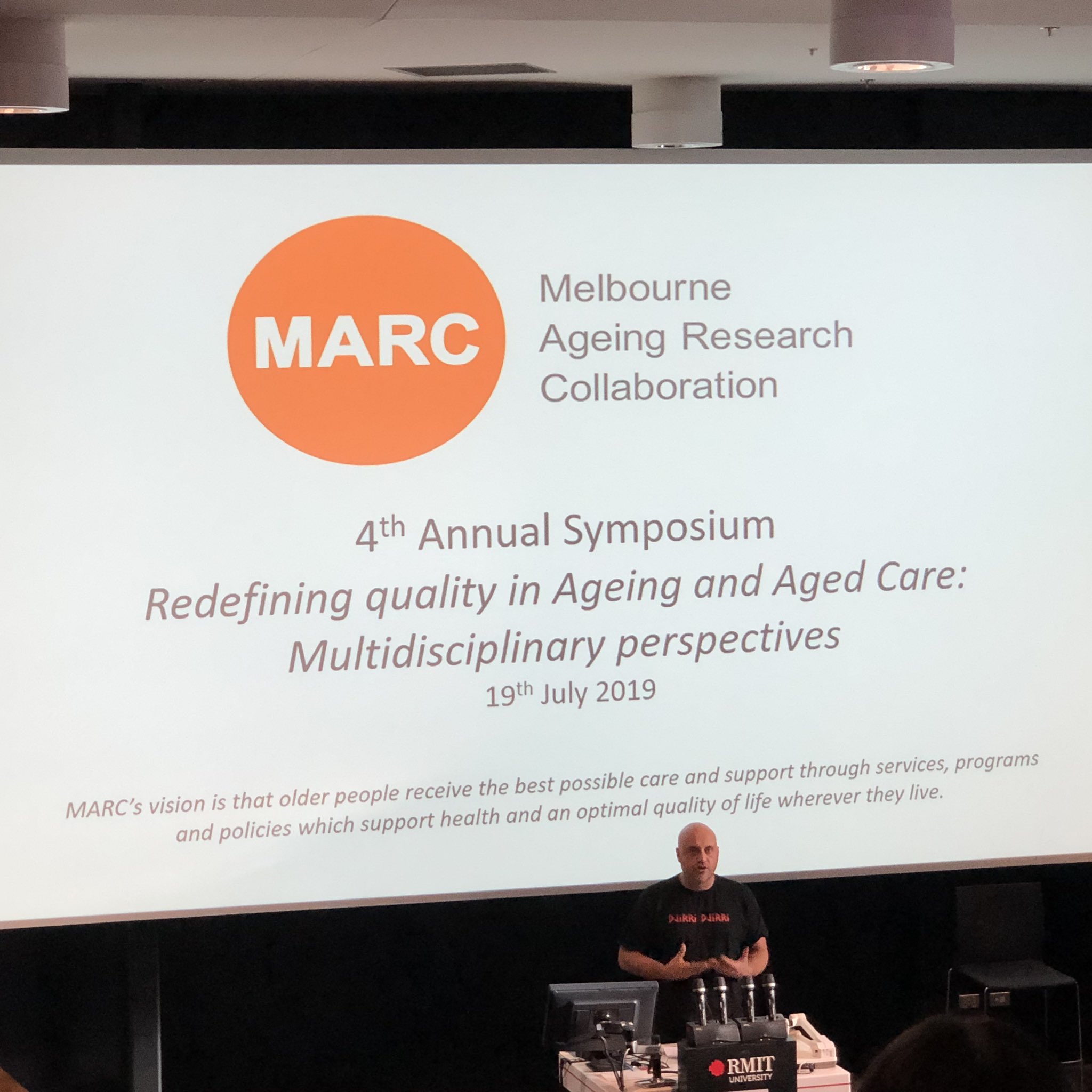
Australia’s population is ageing. By researching ageing now and creating an evidence base for all the aspects of life and society affected by ageing we are helping to build a better future for all.
This event provided an opportunity to hear from leaders from across the continuum of ageing and aged care services, from hospitals and aged care to allied health and primary health, to economic and policy contexts. An expert panel also discussed how we define quality in both ageing and aged care.
See the Symposium agenda here.
If you would like to get involved with this project, fill out the form below or reach out to project leaders via the contact info provided alongside each bio.
Designing for social futures
How might we live and die well?
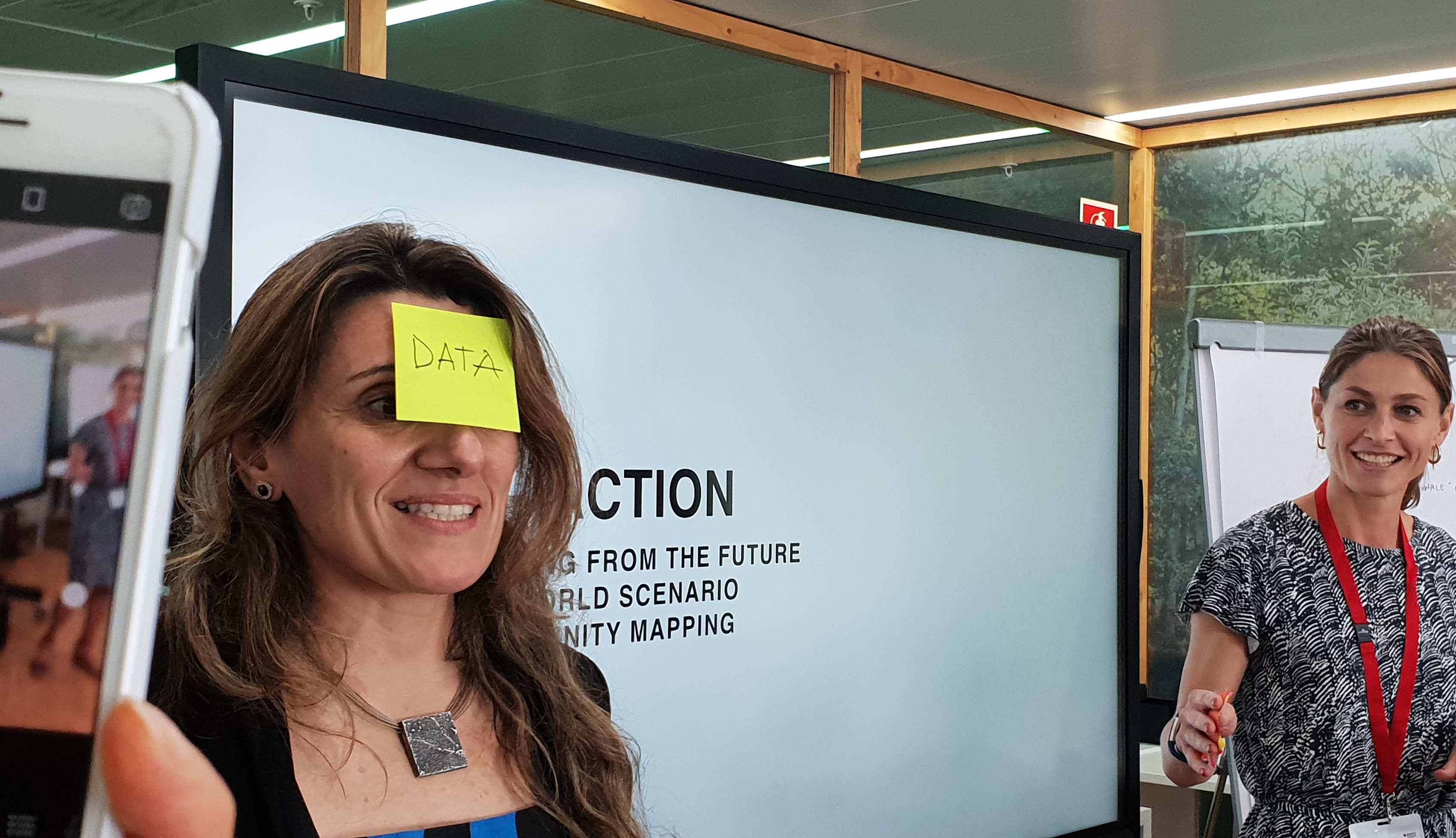
We interrogate how we might embed care in all facets of formal and informal, digital and material context to create new pathways towards inclusive and just futures in this rapidly ageing, socially precarious, and digitally networked era.
In 2018, we initiated transdisciplinary, cross-sectoral, and co-creative engagements to identify challenges and opportunities for living-and-dying-well-futures beyond traditional medicine and healthcare interventions. The initial engagements included the Designing for Social Futures of Ageing Communities and Places in Japan, and the Rethinking Health: Thick Data for Ageing Well workshop in Barcelona. Building on these, we continue to explore non-disciplinary-bounding tools and methods for research and practice focused on care and wellbeing across the world.
If you would like to get involved with this project, fill out the form below or reach out to project leaders via the contact info provided alongside each bio.
People
Jaz Hee-jeong Choi
Vice-Chancellor’s Senior Research Fellow
School: Design and Social Context
Dr Jaz Hee-jeong Choi is a Vice-Chancellor’s Senior Research Fellow at the Digital Ethnography Research Centre at RMIT. Previously, she was a Founding Member and the Director of the QUT Urban Informatics Research Lab, a transdisciplinary research group exploring and designing at the intersection of people, places, and technologies. She also founded the SIGCHI FoodCHI Network.
She is an advocate for transdisciplinary research, carefully balancing creativity and criticality. Her approach to urban sustainability recognises ‘play’ as the core of transformative interactions in cities as complex techno-social networks. She builds on this to explore how various forms of digital and playful experiences are designed and evolve in different cultural contexts. Her current research explores designing with and for care for liveable and equitable urban futures across three inter-related domains: wellbeing and ageing; impactful research methods, and; co-creative urban transformation.
She has collaborated with leading international researchers, published in books and journals across various disciplines, and given invited talks at major international conferences including the inaugural Global Social Economy Forum in 2013 and the opening keynote at the 2010 UNESCO Creative Cities Conference.
DCP HDR Working Group on Wellbeing and Belonging
Understanding HDR Wellbeing in and post COVID-19

Over the past few years, studies internationally have identified the power of the arts to improve wellbeing and health. At RMIT, we specialise at arts-based, codesign and ethnographic approaches to address social, ecological and health challenges. The DCP HDR Working Group on Wellbeing and Belonging are developing short term and long term projects around understanding HDR wellbeing and developing human-centred approaches to digital innovation. It seeks to address issues around the 2020 crisis (bushfires, climate change and COVID-19) and how we can empower HDRs for sustaining futures.
Within the working group, there is expertise in terms of ethnographic, user-experience methods, co-design frameworks, digital media curriculum and evaluation. This working group is researching the role of social and digital innovation for addressing impact of social isolation and associated emotional distress on wellbeing of HDR students during the COVID-19 crisis. The findings of this study will be deployed for future strategies for HDR students wellbeing.
If you would like to get involved with this project, fill out the form below or reach out to project leaders via the contact info provided alongside each bio.
People
Anne Harris
Associate Professor and Principal Research Fellow, Design and Social Context
School: Education
+61 3 9925 4459
RMIT staff profile
anne.harris@rmit.edu.au
Dr Anne M. Harris, PhD is an Associate Professor and Vice Chancellor’s Principal Research Fellow at RMIT University, and an Australian Research Council Future Fellow (2017 – 2021) studying intercultural creativity. Anne is an Honorary Research Fellow at University of Nottingham (UK) and an Adjunct Professor at Monash University (Australia).
Their research is in the areas of gender, creativity, diversity, performance and emerging digital ethnographies. Anne is a native New Yorker and has worked professionally as a playwright, teaching artist and journalist in the USA and Australia. They have authored or co-authored over 60 articles and 13 books on creativity, arts, and non-dominant culture formations, the latest being Queering Families/Schooling Publics: Keywords (with Stacy Holman Jones, Sandra Faulkner, and Eloise Brook, Routledge 2017). Anne is the creator and series editor of the Palgrave book series Creativity, Education and the Arts, and recently completed an Australian Research Council DECRA on the commodification of creativity.
Catherine Gomes
Associate Professor
School: Media and Communication
Catherine Gomes is an Associate Professor in RMIT University’s School of Media and Communication. Catherine is an ethnographer whose work contributes to the understanding of the evolving migration, mobility and digital media nexus. As a migration and mobility scholar, Catherine specialises on the social, cultural and communication spaces of transient migrants, especially international students, their wellbeing, their social groups and their digital engagements. Catherine’s work covers the themes of identity, ethnicity, race, memory and gender. She is a specialist on the Asia-Pacific with Australia and Singapore being significant fieldwork sites. Catherine has experience in mixed methods and interdisciplinary research.
Catherine’s work on transient migration and digital technology is advancing work on migration and mobility because of the transient-digital nexus she pioneers. Moreover, as founding editor of Transitions: Journal of Transient Migration Migration (Intellect), editor of the Culture, Media and Communication in Migrant Societies book series (Amsterdam University Press) and lab leader of the Migration and Digital Media Research Lab housed in the Digital Ethnography Research Centre (DERC), Catherine facilitates intellectual discussions with the aim of generating practical outcomes to address and assist policymakers and stakeholders interested in transient migration and international mobility.
Larissa Hjorth
Distinguished Professor and Director, Design and Creative Practice
School: Enabling Capability Platforms
Larissa Hjorth is a digital ethnographer, artist, Distinguished Professor and director of the Design & Creative Practice ECP platform at RMIT University. With Professor Heather Horst, she co-founded the Digital Ethnography Research Centre (DERC). Previously, Hjorth was Deputy Dean, Research & Innovation, in the School of Media & Communication (2013−2016). Hjorth served on the inaugural Australian Research Council (ARC) Engagement & Impact Pilot study assessment panel for humanities and creative practice.
Hjorth studies the socio-cultural dimensions of mobile media and play practices in the Asia-Pacific region with an emphasis on interdisciplinary, collaborative and cross-cultural approaches. She has published a dozen co-authored books, edited over a dozen Handbooks/Companions and has over 40 journal articles.
More recently, Hjorth’s work has become concerned with how we can bring creative, social and design solutions to the growing ageing populations and, in turn, how we might consider scenarios of what it means to die well. She is also studying how our “more-than-human” companions can teach us about new media in everyday life. Hjorth’s last book, Haunting Hands (Oxford Uni Press) looked at how mobile media is being deployed in situations of grief and trauma, her previous book explored how art practice can teach us new acumen into the climate change debate.
Hjorth’s books include Haunting Hands (with Cumiskey 2017), Screen Ecologies (with Pink, Sharp & Williams 2016), Digital Ethnography (Pink et al. 2016) Mobile Media in the Asia-Pacific (2009), Games & Gaming (2010), Online@AsiaPacific (with Arnold 2013), Understanding Social Media (with Hinton 2013), and Gaming in Locative, Social and Mobile Media (with Richardson 2014).
Ingrid Richardson
Professor
School: Media and Communication
Professor Ingrid Richardson has been teaching, supervising and researching in the fields of digital media, mobile media and games for over twenty years. She has a broad interest in the human-technology relation and has published widely on the phenomenology of games and mobile media, digital ethnography and innovative research methods, the relation between technology use and wellbeing, and the cultural effects of urban screens, wearable technologies, virtual and augmented reality, remix culture and web-based content creation and distribution. Ingrid has led or co-led 14 funded research projects, the most recent being an ARC DP [Games of Being Mobile] with Larissa Hjorth. She is contributing co-editor of Studying Mobile Media (Routledge, 2011) and co-author of Gaming in Social, Locative and Mobile Media (Palgrave, 2014), Ambient Play (MIT, 2020), Understanding Games and Game Cultures (Sage, 2020), Exploring Minecraft: Ethnographies of Play and Creativity (Palgrave, forthcoming), and Mobile Media and the Urban Night (Palgrave, forthcoming). Ingrid brings ten years’ experience in university-level HDR management and during this time has actively championed and supported creative methods and practice-led postgraduate research. Over the past five years she has also developed a passion for teaching critical web literacy skills to undergraduate students across all disciplines.
Natalie Hendry
VC Research Fellow
School: Media and Communication
Natalie Hendry is a Vice Chancellor’s Postdoctoral Fellow in the School of Media and Communications. Her research explores everyday social media and digital technology practices in the context of critical approaches to education, mental health, media, wellbeing, youth studies and policy. This brings together her experience prior to academia, working in community education, secondary schools and hospital settings, and consulting for health organisations and industry. Using digital ethnography and creative workshop methods, her postdoctoral research explores emerging and potential online opportunities to enhance digital outreach and media-based support for young people whose parents or adult family members are experiencing mental ill-health.
Renata Kokanovic
Convener, The HEALTH Network; Professor
School: Global, Urban & Social Studies
Professor Renata Kokanovic’s works at the intersections of health, society and medicine, with a particular focus on interdisciplinary mental health research.She combines empirical research with interdisciplinary theoretical and methodological scholarship while collaborating with industry partners and health care users to facilitate greater understanding of lived experiences of health and illness.
She co-founded Healthtalk Australia, a digital repository of health and illness narrative accounts designed to support people experiencing ill health, and inform health and social care delivery and policy.
Ruth De Souza
VC Research Fellow
School: School of Art
Dr Ruth De Souza (FACN) is a Vice-Chancellor’s Fellow at RMIT, based in the School of Art and DCP Research Platform. She is a nurse, academic and a community-engaged researcher in gender, race, health and digital technologies. Ruth’s Fellowship will engage health professionals in finding new ways to understand, co-design and implement sustainable cultural safety initiatives in a range of health contexts in response to health inequities.
Prior to moving to Australia in 2013, Ruth worked at AUT University where she taught in the School of Nursing, led the Bachelor of Health Promotion, and was a Senior Research Fellow at the Centre for Asian and Migrant Health Research. Since her arrival in Australia, Ruth has undertaken a wide range of roles, including leading an undergraduate nursing program at Monash University’s Berwick campus; spearheading a unique community-engaged joint research appointment with North Richmond Community Health exploring how wearables and other digital technologies are perceived by people from culturally and linguistically different backgrounds and co-ordinating an interdisciplinary Data Systems and Society Research Network across the University of Melbourne. Ruth has also investigated the applicability of cultural safety in Australia, working closely with The Congress of Aboriginal and Torres Strait Islander Nurses and Midwives (CATSINaM), presenting at their National Professional Development Conferences and delivering training on cultural safety. She has also undertaken a two-year cultural safety project with cohealth (a not-for-profit community health organisation) and Our Watch who work for the primary prevention of violence against women and their children.
CaTPin
Conversation as Therapy

CaTPin was the finalist for the 2018 DCP Design Challenge.
The Design Challenge was a joint initiative between Telstra and the Design & Creative Practice ECP which sought to tackle the real-world issue: How do we design for Ageing Well Futures?
CaTPin presented the idea of “conversation as therapy’. It aimed to address the issue of loneliness due to a lack of social interaction by developing a discreet, low-cost wearable. Taking the form of a lapel pin or brooch, designed in collaboration with the wearer, the device detects the presence or absence of conversation. It is founded on the premise that loneliness is manifest in a poverty of conversation, hence using the number of words spoken a day as a surrogate marker for social isolation and loneliness.
If you would like to get involved with this project, fill out the form below or reach out to project leaders via the contact info provided alongside each bio.
People
Leah Heiss
School: Communication Design
99253494
Personal website
leah.heiss@rmit.edu.au
Leah Heiss is a Melbourne-based designer whose practice is located at the nexus of design, technology and health. Within her projects she collaborates widely — working with experts from nanotechnology, medicine, hearing and manufacturing through to fashion design.
Leah is an academic in the RMIT Interior Design program, a researcher at the RMIT Centre for Advanced Materials and Performance Textiles, and a practicing designer whose work has both commercial and research outcomes. Her design work has been exhibited and presented both locally and globally, and attracted significant local and international press across all platforms. She recently received a Good Design Award – Social Innovation for her design contribution to the IHearYou system with Blamey Saunders Hears.
Creative Care
Exploring creative practice and teaching in health and wellbeing
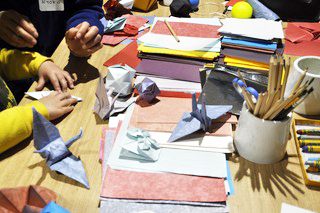
Creative Care researchers and students engage in creative research that intersects with health, wellbeing and the human lived experience. Creative Care projects are undertaken through diverse mediums; they are site specific social practices. The collaborative and interdisciplinary research is realised through exhibitions, performances, events, publications, or undertaken within health and social care settings, and with industry partners.
In August 2019, Creative Care presented Hand Festival at Peter MacCallum Cancer Centre in Melbourne. The team, along with Professor Rebecca Hilton (University Arts Stockholm), organised the social practice choreographed event designed with a focus on the hand for trust and intimate hand activities. Seventeen artists, colleagues, student nurses from RMIT, and Peter Mac staff and patients participated in hand drawing, origami, hand massages, wax modelling, mbira, knitting, cat’s cradle and more. Later that month, the team ran Hands + Mouth: Boundaries of the Body, an experimental and participatory “world cafe” event which explored the boundaries of the body at the end of life (touch, embodiment, gestures and more) through roving conversations about end of life scenarios with a focus on death and dying, ageing and illness and how they intersect with culture, the senses and place.
You can find out more about the Creative Care project on the CAST Website.
If you would like to get involved with this project, fill out the form below or reach out to project leaders via the contact info provided alongside each bio.
People
Keely Macarow
Associate Professor
School: School of Art
Keely Macarow is Coordinator of Postgraduate Research in the School of Art at RMIT. Keely’s research is focused on socially engaged art and the nexus between creative arts, social justice, health and wellbeing, and social and natural science. Currently, Keely is a member of The Untitled (a collective of artists, urban and graphic designers, architects and housing researchers based in Melbourne and Stockholm) who produce creative works, publications and interventions in Australia and Sweden to advocate for Homefullness (rather than homelessness). Her film, video and exhibition projects have been presented in Australia, the UK, the US, Germany, Belgium, Austria, Sweden, Hungary, France, Scotland and Denmark.
Design for Wellbeing Network
Working to improve the design of healthcare environments
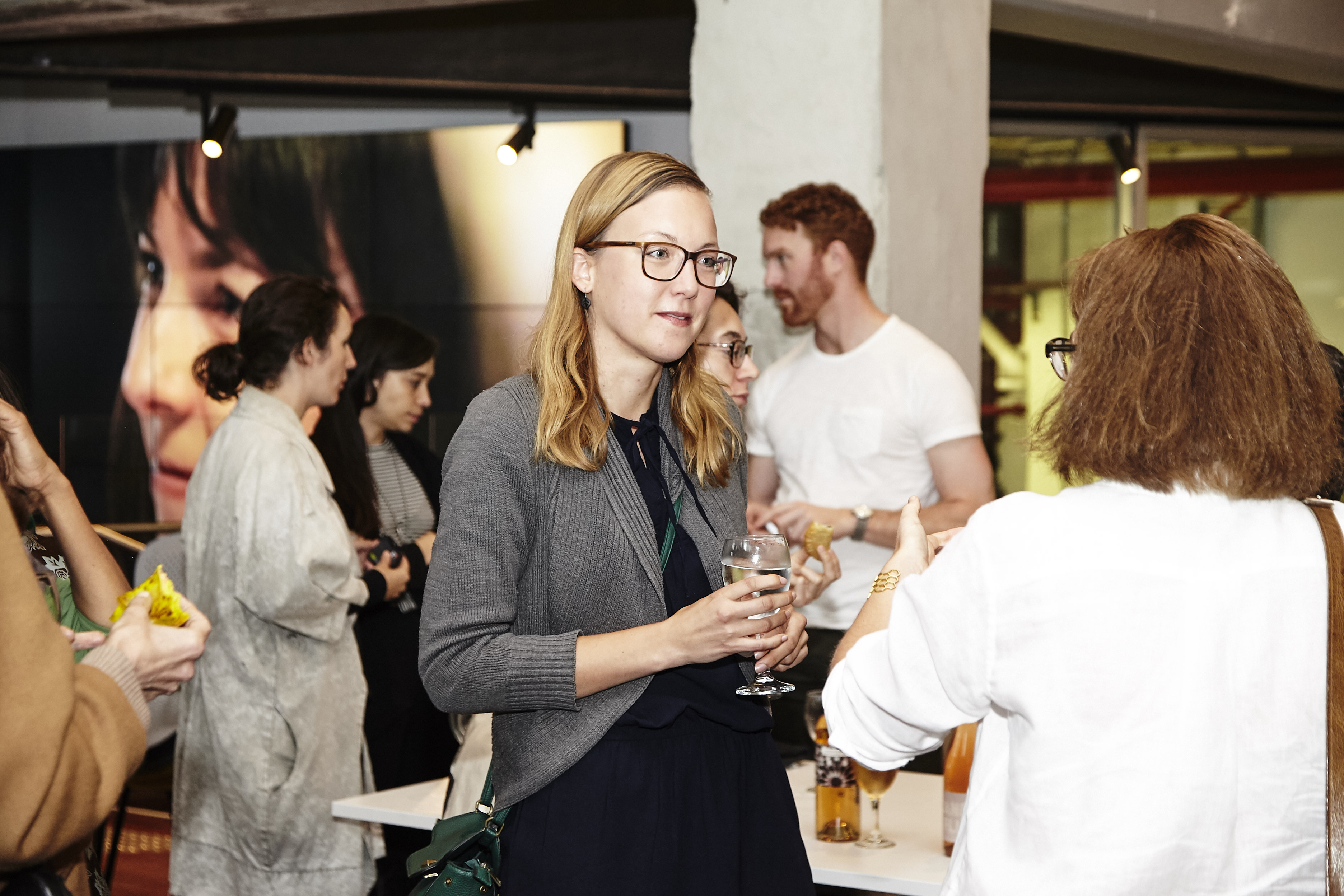
What are the gaps in healthcare design? Focusing specifically on hospitals and other formal healthcare settings, the Design for Wellbeing Network (DfW) aims to improve the understanding of how people experience these services and environments. The group of international and interdisciplinary researchers are working towards improvements in these experiences through rigorous qualitative and practice-based research.
The DfW is committed to deploying their research through partnerships with external organisations such as hospital groups, designers, architects and government.
Visit the DfW website.
If you would like to get involved with this project, fill out the form below or reach out to project leaders via the contact info provided alongside each bio.
People
Care, Media and Ritual
Creative, social and ethnographic interventions in care
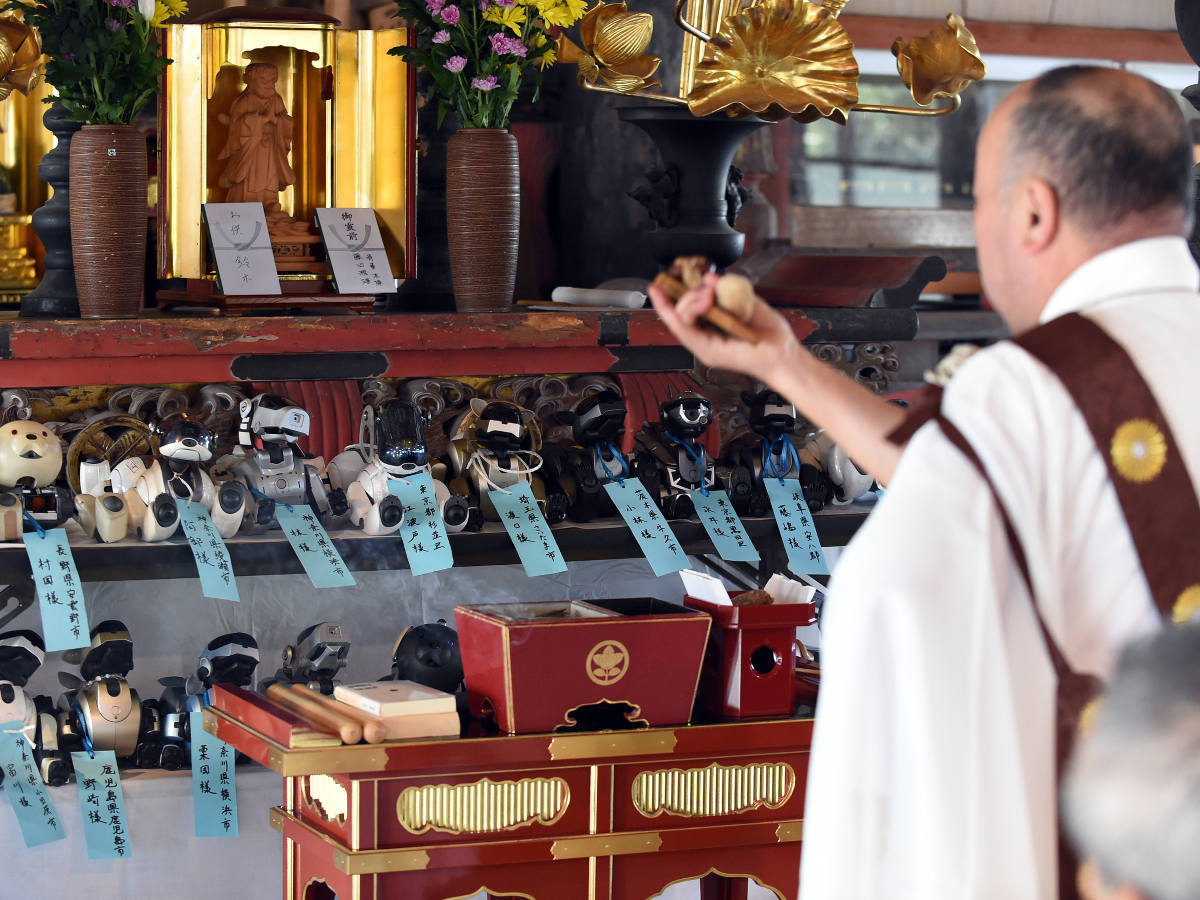
New media is increasingly mediating the role of care and ritual around ageing (and dying). For example, in Japan where a large percentage of the population is elderly, the role of care and ritual is being recalibrated. New media and digital mobile technologies are affording families new ways to care-at-a-distance. What does care, media and ritual look like when replicated by new technologies?
We’re exploring some of the practices and challenges in thinking through the entanglement of care, media and ritual. Drawing from experts in anthropology, environmental science, digital media, social work and design we explore various scenarios of use (past, present and future) so that we might provide creative, design, social and ethnographic interventions to this real-world problem.
If you would like to get involved with this project, fill out the form below or reach out to project leaders via the contact info provided alongside each bio.
People
Larissa Hjorth
Distinguished Professor and Director, Design and Creative Practice
School: Enabling Capability Platforms
Larissa Hjorth is a digital ethnographer, artist, Distinguished Professor and director of the Design & Creative Practice ECP platform at RMIT University. With Professor Heather Horst, she co-founded the Digital Ethnography Research Centre (DERC). Previously, Hjorth was Deputy Dean, Research & Innovation, in the School of Media & Communication (2013−2016). Hjorth served on the inaugural Australian Research Council (ARC) Engagement & Impact Pilot study assessment panel for humanities and creative practice.
Hjorth studies the socio-cultural dimensions of mobile media and play practices in the Asia-Pacific region with an emphasis on interdisciplinary, collaborative and cross-cultural approaches. She has published a dozen co-authored books, edited over a dozen Handbooks/Companions and has over 40 journal articles.
More recently, Hjorth’s work has become concerned with how we can bring creative, social and design solutions to the growing ageing populations and, in turn, how we might consider scenarios of what it means to die well. She is also studying how our “more-than-human” companions can teach us about new media in everyday life. Hjorth’s last book, Haunting Hands (Oxford Uni Press) looked at how mobile media is being deployed in situations of grief and trauma, her previous book explored how art practice can teach us new acumen into the climate change debate.
Hjorth’s books include Haunting Hands (with Cumiskey 2017), Screen Ecologies (with Pink, Sharp & Williams 2016), Digital Ethnography (Pink et al. 2016) Mobile Media in the Asia-Pacific (2009), Games & Gaming (2010), Online@AsiaPacific (with Arnold 2013), Understanding Social Media (with Hinton 2013), and Gaming in Locative, Social and Mobile Media (with Richardson 2014).
Pet Playing for Placemaking
Designing playful technologies for social engagement and healthy ageing
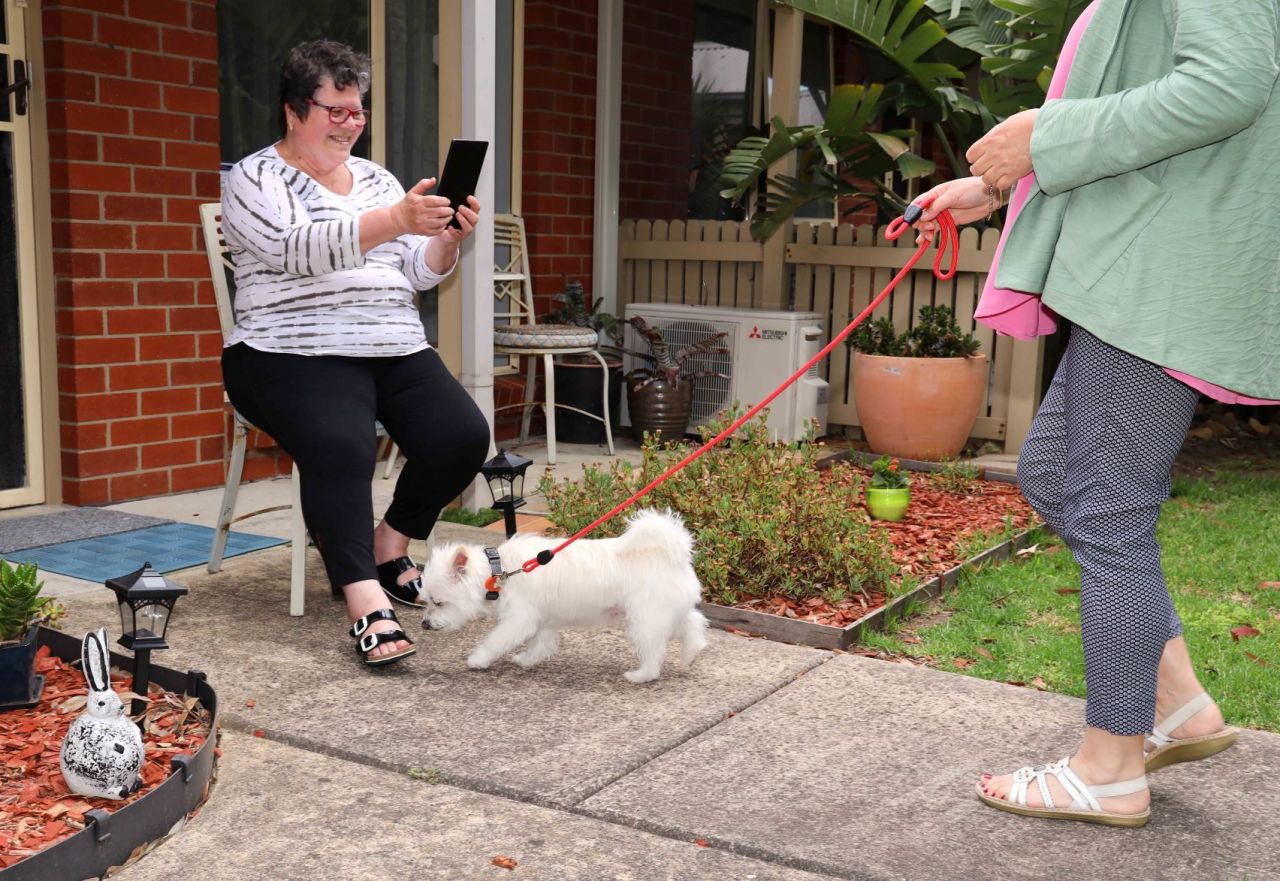
With many pet owners experiencing social isolation during the pandemic, RMIT researchers are collaborating with Cherished Pets Foundation and its affiliated veterinary social enterprise towards improving social inclusion in the local community. The initiative has received community funding to bring an interactive, playful, and creative spin through a game designed to promote social engagement and healthy ageing.
Pet Playing for Placemaking Survey Report — October 2020
2021 Give Where You Live Community Connections Grant
If you would like to get involved with this project, fill out the form below or reach out to project leaders via the contact info provided alongside each bio.
People
Larissa Hjorth
Distinguished Professor and Director, Design and Creative Practice
School: Enabling Capability Platforms
Larissa Hjorth is a digital ethnographer, artist, Distinguished Professor and director of the Design & Creative Practice ECP platform at RMIT University. With Professor Heather Horst, she co-founded the Digital Ethnography Research Centre (DERC). Previously, Hjorth was Deputy Dean, Research & Innovation, in the School of Media & Communication (2013−2016). Hjorth served on the inaugural Australian Research Council (ARC) Engagement & Impact Pilot study assessment panel for humanities and creative practice.
Hjorth studies the socio-cultural dimensions of mobile media and play practices in the Asia-Pacific region with an emphasis on interdisciplinary, collaborative and cross-cultural approaches. She has published a dozen co-authored books, edited over a dozen Handbooks/Companions and has over 40 journal articles.
More recently, Hjorth’s work has become concerned with how we can bring creative, social and design solutions to the growing ageing populations and, in turn, how we might consider scenarios of what it means to die well. She is also studying how our “more-than-human” companions can teach us about new media in everyday life. Hjorth’s last book, Haunting Hands (Oxford Uni Press) looked at how mobile media is being deployed in situations of grief and trauma, her previous book explored how art practice can teach us new acumen into the climate change debate.
Hjorth’s books include Haunting Hands (with Cumiskey 2017), Screen Ecologies (with Pink, Sharp & Williams 2016), Digital Ethnography (Pink et al. 2016) Mobile Media in the Asia-Pacific (2009), Games & Gaming (2010), Online@AsiaPacific (with Arnold 2013), Understanding Social Media (with Hinton 2013), and Gaming in Locative, Social and Mobile Media (with Richardson 2014).
Jacob Sheahan
PhD Candidate
School: School of Design
0424056233
Personal website
jacob.sheahan@rmit.edu.au
Currently undertaking a PhD in Design at RMIT School of Design, Jacob explores socially engaging technology in later life and its shaping by designers. Approaching design research through investigating the materiality of artifacts, and our interactions with them, Jacob seeks to uncover social-technical practices through dialogical and anthropological means.
Alongside his doctorate research, Jacob is involved in ‘Co-designing Participatory Strategies With Older Adults ‘ (Shaping Connections) and ‘Enabling an Ageing Workforce’ (Safeness by Design) research projects. As a sessional lecturer in Design Studies, Jacob hopes to foster research-led and collaborative design practices in socially complex contexts. With a diverse background in the design industry, he is interested in locating design research practice in wider discourses and interrogating its impact.
Rainbow Ranges
Co-creating digital tools for vitalism with LGBTQI+ youth
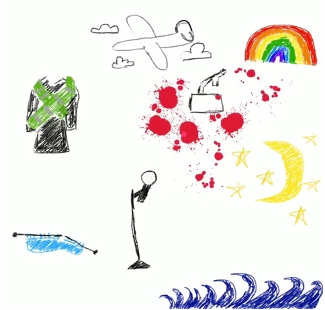
This pilot study set out to disrupt the dominant understandings of queer youth centred on narratives of vulnerability and distress.
Working with LGBTQI+ youth based in regional Victoria, Rainbow Ranges investigated how these young people understood and experienced vitality and aliveness through a series of creative arts-based workshops. The project team and young people co-created a concept for digital intervention to promote a sense of belonging, foster social connections, and improve the wellbeing of LGBTIQ+ identifying individuals and communities.
If you would like to get involved with this project, fill out the form below or reach out to project leaders via the contact info provided alongside each bio.
People
Anne Harris
Associate Professor and Principal Research Fellow, Design and Social Context
School: Education
+61 3 9925 4459
RMIT staff profile
anne.harris@rmit.edu.au
Dr Anne M. Harris, PhD is an Associate Professor and Vice Chancellor’s Principal Research Fellow at RMIT University, and an Australian Research Council Future Fellow (2017 – 2021) studying intercultural creativity. Anne is an Honorary Research Fellow at University of Nottingham (UK) and an Adjunct Professor at Monash University (Australia).
Their research is in the areas of gender, creativity, diversity, performance and emerging digital ethnographies. Anne is a native New Yorker and has worked professionally as a playwright, teaching artist and journalist in the USA and Australia. They have authored or co-authored over 60 articles and 13 books on creativity, arts, and non-dominant culture formations, the latest being Queering Families/Schooling Publics: Keywords (with Stacy Holman Jones, Sandra Faulkner, and Eloise Brook, Routledge 2017). Anne is the creator and series editor of the Palgrave book series Creativity, Education and the Arts, and recently completed an Australian Research Council DECRA on the commodification of creativity.
Troy Innocent
VC Research Fellow
School: School of Design
Dr Troy Innocent is an artist, academic, designer, coder, educator, and VC Senior Research Fellow at RMIT University, where his creative practice research explores the city as platform for play through an inventive blend of live art, game design and public art. Over the past ten years he has explored the lived experience of cities through mixed realities; situating his work in Melbourne, Bristol, Barcelona, Istanbul, Ogaki, Sydney and Hong Kong. As Melbourne Knowledge Fellow, Innocent expanded his ‘urban codemaking’ practice for situating play in cities to develop Playable City Melbourne, a three-year project bringing together an interdisciplinary urban play community. He is currently artistic director of 64 Ways of Being, a playable city-wide platform for augmented reality experiences supported by a Creative State Commission.
Katherine Johnson
Professor
School: Social and Global Studies
Professor Katherine Johnson is Director of the Social and Global Studies Centre at RMIT University.
Katherine has been a visiting professor in gender studies at the University of Sydney, Australia (2007), in social psychology and psychosocial interventions at Universitat Autònoma de Barcelona (2009−2012), in participatory-action research and LGBT health inequalities at the Universidade Federal de Sao Paulo, Brazil (2016) and the Universidad de Colima, Mexico (2016). She is currently Visiting Professor at the University of Brighton, UK where she previously established the Division of Applied Psychology & Psychotherapy and the Centre for Research Excellence, Transforming Sexuality and Gender.
Her research is in the field of gender, sexuality and mental health, with specialisms in critical community psychology and psychosocial studies, qualitative, participatory and visual research methods, and interdisciplinary research about LGBTQ lives. Her research collaborations and partnerships focus on improving the lives of LGBTQ+ people and have impacted on social policy and practice, particularly in the field of suicide prevention, mental health and end of life care.
Katherine is an Associate Fellow of the British Psychological Society, Past Chair of the Psychology of Women and Equalities Section, and a member of the World Professional Association for Transgender Health (WPATH). She is on the Editorial Board of Feminism and Psychology and Feminist Encounters: A journal of critical studies in culture and politics. She is also series editor with Professor Kath Browne (Maynooth, Ireland) of the Routledge book series, Transforming LGBTQ Lives. Katherine has served as a panel member for the ESRC Global Challenges Research Fund on global mental health, UK and the Irish Research Council.
Addressing Gender-Based Violence in Aged Care & Disability Support Services in Individualised Settings
Building stakeholder capacity in Victoria

The growing community concern around violence in disability support and aged care services promoted RMIT researchers to consider ways to improve the lives of both service users and workers in home and community-based support and care. Through a series of workshops, this project provided an opportunity for Victorian advocacy groups, unions and researchers to identify common concerns and interests around gender-based violence in both individualised aged care and disability support services, and consider ways to tackle these issues.
This project led to a 2020 Scoping Study for Worksafe Victoria see report here.
If you would like to get involved with this project, fill out the form below or reach out to project leaders via the contact info provided alongside each bio.
People
Sara Charlesworth
Distinguished Professor
School: Management
Sara Charlesworth is Professor of Work, Gender & Regulation and Deputy Head of School, (Research & Innovation) in the School of Management. She is an executive member of the Centre for People, Organisation & Work in the College of Business. Sara has published and presented widely in a wide range of academic, policy and community fora and has been involved in a number of key gender equality policy reviews and debates. She was a panel member on the 2012 ACTU Independent Inquiry into Insecure Work, and an advisor to the Australian Human Rights Commission on their 2014 Pregnancy and Return to Work National Review and 2018 National Sexual Harassment Prevalence Survey.
In 2017 Sara was appointed to the Equal Workplaces Advisory Council, a founding reform of the Victorian government’s Gender Equality Strategy. She is currently a member of the Victoria Police VEOHRC Review Academic Governance Board, on the Steering Group of the Migrant Workers Rights Campaign and co-convenor of the Work+Family Policy Roundtable. Sara is a Fellow of the Future Social Services Institute and is on the editorial board of the Journal of Industrial Relations.
Sara’s research interests centre on gender inequality in employment at the labour market, industry and organisational levels. She has undertaken a number of Australian Research Council-funded projects. Much of her recent research has focused on paid care work. Together with A/Prof Deb King (Flinders), she completed a large three year Department of Health-funded project, ‘Quality Jobs and Quality Care: Improving work practices to deliver quality aged care jobs & aged care services for older Australians’, in partnership with Brightwater Care, HammondCare, Helping Hand and United Voice.
Social Practice Network
Collaborative methods to work with people and across inter-sectoral partnerships
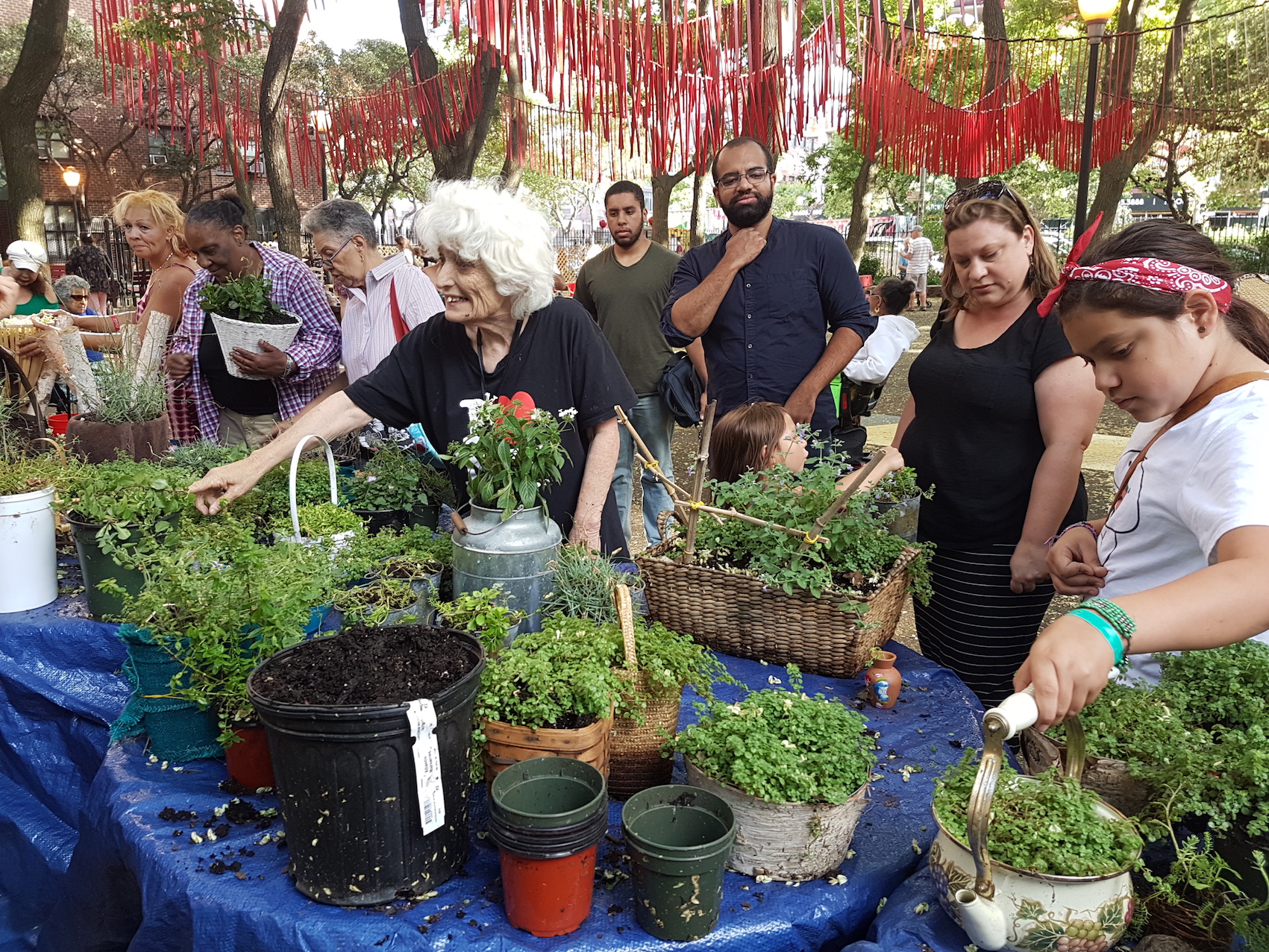
Using human relations as method, social practice connects creative practitioners with communities, industries and institutions to address contemporary social issues. This conversation series, podcast, and symposium aims to develop a regional network across art and design to establish RMIT’s identity as a leader in social practice pedagogy as well as to develop new industry collaborations across Australia. The series explores; collaboration in urban and regional communities, the potential for risk and harm in engagement, and new social economies in art and design.
If you would like to get involved with this project, fill out the form below or reach out to project leaders via the contact info provided alongside each bio.
People
Marnie Badham
Senior Research Fellow/ Senior Lecturer
School: School of Art
With a twenty-five-year history of art and social justice practice Australia and Canada, Marnie’s research sits at the intersection of socially engaged art, community-based research methodologies and the politics of cultural measurement. Marnie is currently focused on a series of creative cartographies registering emotion in public space; expanded curation projects on the aesthetics and politics of food; and a book project The Social Life of Artist Residencies: connecting with people and place not your own. Marnie is Senior Research Fellow at the School of Art following the prestigious award of Vice Chancellor’s Postdoctoral Research Fellow at RMIT University. Marnie co-leads the Cultural Value Impact Network and is acting Leader for CAST Contemporary Art and Social Transformation research group.
Canadian & Australian Book Industries Conversation
Exploring new collaborative opportunities in publishing
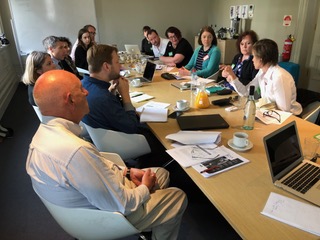
How healthy is the bookselling and publishing industry in Australia? And what are the key reasons for this state of wellbeing (or illness)?
Canadian and Australian Book Industries Conversation (CABIC) brings together leading academics and industry figures to explore themes important to Australian and Canadian authors, illustrators and publishers, including the importance of local content, the book industry policy climate, and regulatory changes and challenges.
If you would like to get involved with this project, fill out the form below or reach out to project leaders via the contact info provided alongside each bio.
People
Julienne Van Loon
Senior Research Fellow, Design and Social Context
School: Media and Communication
+61 3 9925 9564
RMIT staff profile
julienne.vanloon@rmit.edu.au
Dr Julienne van Loon is a Vice Chancellor’s Senior Research Fellow with non/fictionLab, and a leading Australian novelist and essayist. Her first novel, Road Story, won The Australian/Vogel’s award in 2005 and was shortlisted for the WA Premier’s Award for Fiction and the Commonwealth Writers’ Prize Best First Book Award (Asia and Pacific). She has held residencies at various international arts organisations and universities, including the University of Iowa, where she was sponsored by the Paul and Hauling Engle Fund to take part in the International Writing Program in 2017. van Loon co-edits the leading scholarly Creative Writing journal TEXT, and is a peer-assessor for the Australia Council for the Arts. Her forthcoming essay collection, The Thinking Woman, includes interviews with key women thinkers from the Australia, Europe and the United States. Her scholarly research interests include the role of play in research and creative practice.
Connecting Insights around Care-at-a-distance
Concept-generation workshop with Telstra
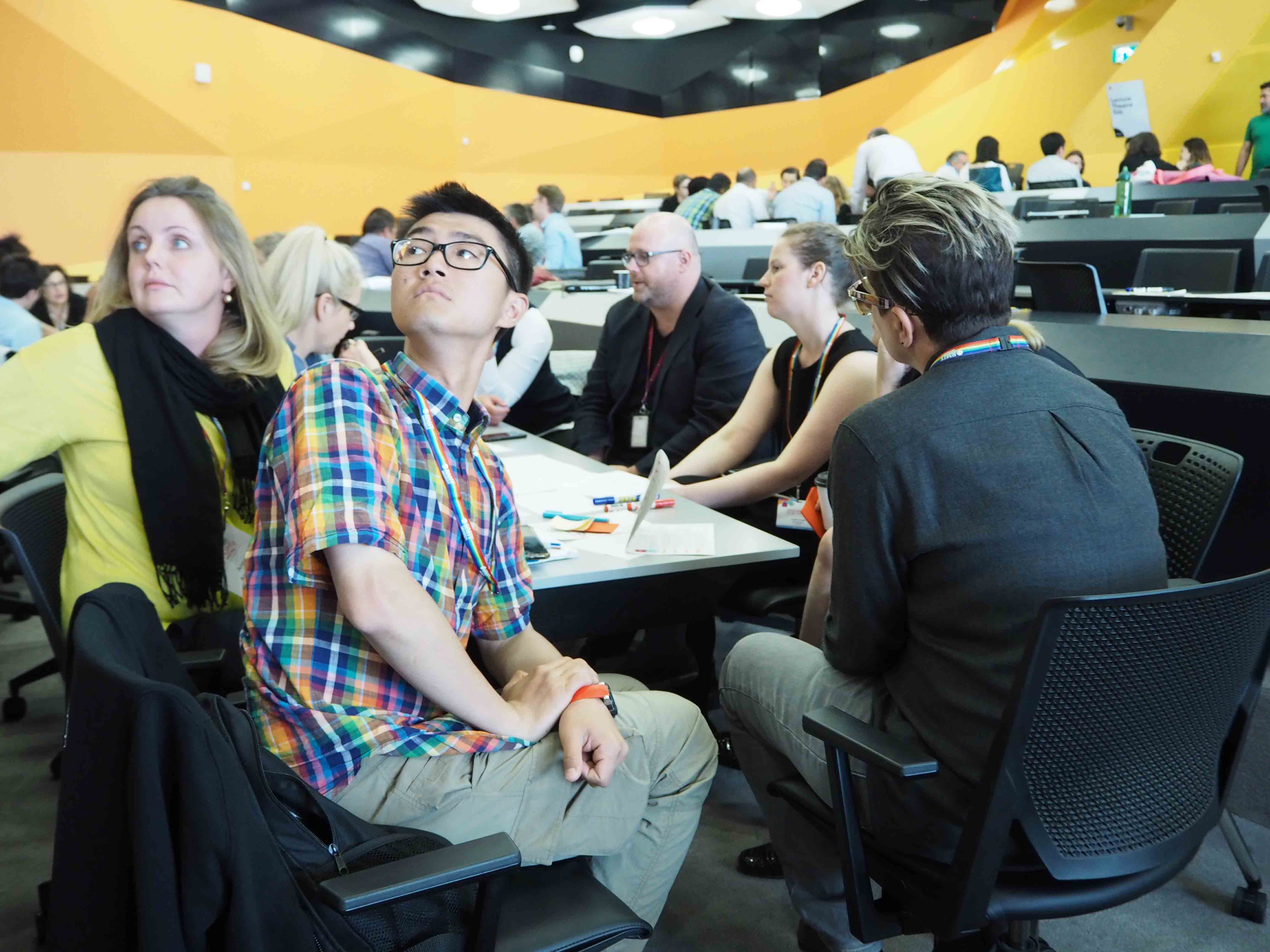
As part of the inaugural Engaging for Impact conference, the DCP ECP and Telstra ran a concept-generation workshop which brought together expertise around the creative, social, cultural, educational and ethnographic dimensions of technology and care to provide greater insights into practices now and in the future. The workshop considered some of the challenges and opportunities in the emergent fields of locative media, intergenerational care-at-a-distance, friendly surveillance and assisted living. Much of the discussion encircled key paradoxes around the following concepts:
- vulnerable agency (elderly, young children, animals);
- security and surveillance;
- privacy vs findability; and
- datafication.
If you would like to get involved with this project, fill out the form below or reach out to project leaders via the contact info provided alongside each bio.
People
Larissa Hjorth
Distinguished Professor and Director, Design and Creative Practice
School: Enabling Capability Platforms
Larissa Hjorth is a digital ethnographer, artist, Distinguished Professor and director of the Design & Creative Practice ECP platform at RMIT University. With Professor Heather Horst, she co-founded the Digital Ethnography Research Centre (DERC). Previously, Hjorth was Deputy Dean, Research & Innovation, in the School of Media & Communication (2013−2016). Hjorth served on the inaugural Australian Research Council (ARC) Engagement & Impact Pilot study assessment panel for humanities and creative practice.
Hjorth studies the socio-cultural dimensions of mobile media and play practices in the Asia-Pacific region with an emphasis on interdisciplinary, collaborative and cross-cultural approaches. She has published a dozen co-authored books, edited over a dozen Handbooks/Companions and has over 40 journal articles.
More recently, Hjorth’s work has become concerned with how we can bring creative, social and design solutions to the growing ageing populations and, in turn, how we might consider scenarios of what it means to die well. She is also studying how our “more-than-human” companions can teach us about new media in everyday life. Hjorth’s last book, Haunting Hands (Oxford Uni Press) looked at how mobile media is being deployed in situations of grief and trauma, her previous book explored how art practice can teach us new acumen into the climate change debate.
Hjorth’s books include Haunting Hands (with Cumiskey 2017), Screen Ecologies (with Pink, Sharp & Williams 2016), Digital Ethnography (Pink et al. 2016) Mobile Media in the Asia-Pacific (2009), Games & Gaming (2010), Online@AsiaPacific (with Arnold 2013), Understanding Social Media (with Hinton 2013), and Gaming in Locative, Social and Mobile Media (with Richardson 2014).
Cold Climate Landscapes and Atmospheres
Examining the effects of global warming on cold climate ecologies
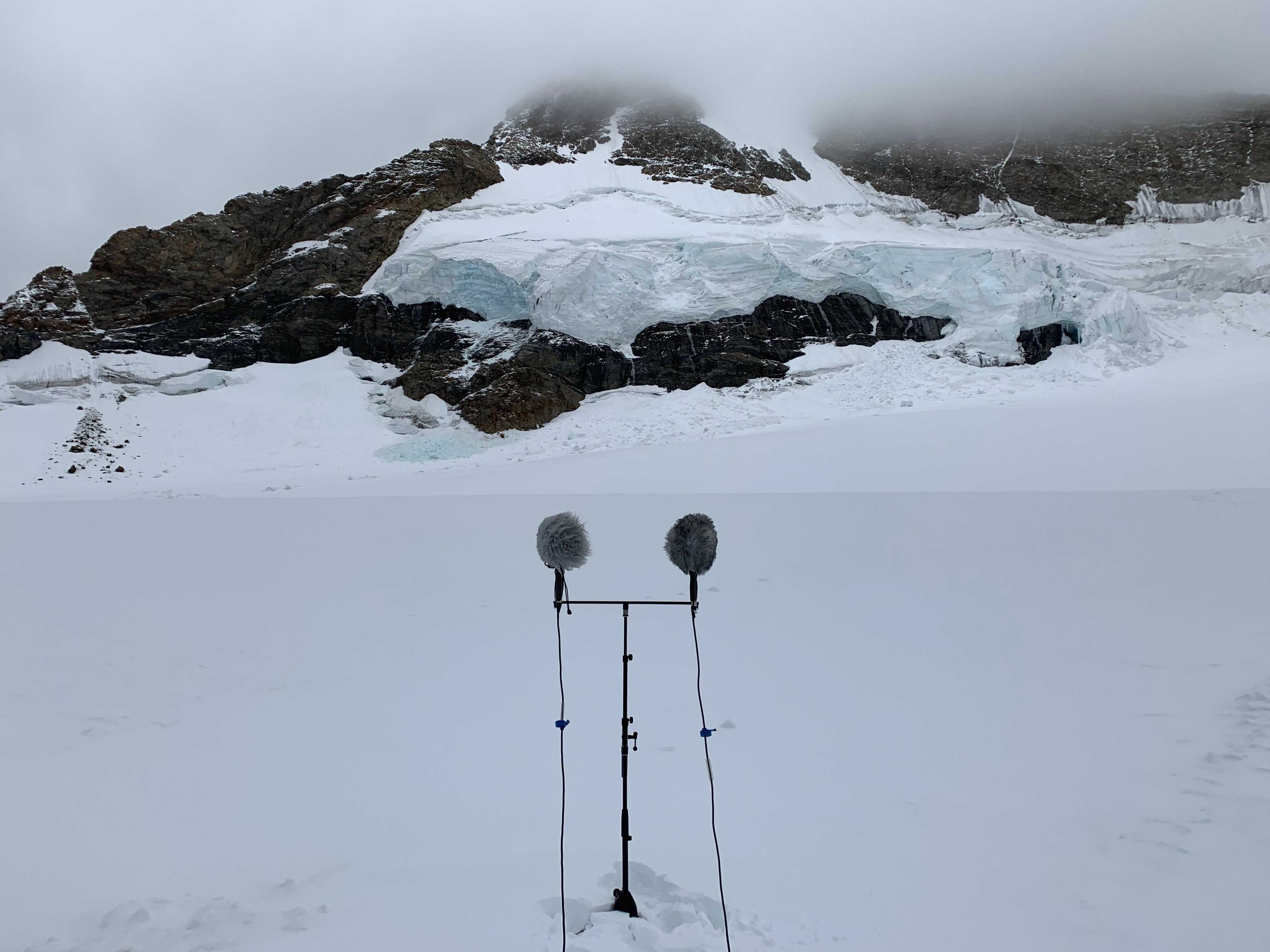
This project explores the impact of extreme climate and weather events on rarefied wilderness environments through the process of sound mapping to reveal the transformations occurring on the margins of our planet, and yet central to the health and wellbeing of everyone. Art is a powerful agent and advocate in how these transformations are perceived and the actions required to mitigate destructive behaviours and their long-term consequences.
“I’m not a scientist but I’m using art to articulate some of these observations and concerns to a much broader audience.”
— Lead researcher, Philip Samartzis in SWI swissinfo.ch, This is what the changing Alps sound like, 20 December 2019.
If you would like to get involved with this project, fill out the form below or reach out to project leaders via the contact info provided alongside each bio.
People
Philip Samartzis
School: School of Art
Philip is an Associate Professor within RMIT School of Art, and leader of the Sound Art and Audio Culture Lab.
Associate Professor Samartzis is a sound artist, scholar and curator with a specific interest in the social and environmental conditions informing remote wilderness regions and their communities. His art practice is based on deep fieldwork where he deploys complex sound recording technology to capture natural, anthropogenic and geophysical forces. The recordings are used within various exhibition, performance and publication outcomes to demonstrate the transformative effects of sound within a fine art context. He is particularly interested in concepts of perception, immersion and embodiment in order to provide audiences with sophisticated encounters of space and place. Philip is the recipient of three Australian Antarctic Division Arts Fellowships (2009, 2015, 2020), which he is using to document the effects of extreme climate and weather events in Eastern Antarctica, Macquarie Island, and the Southern Ocean over a 12-year period.
COVID frontlines in Australia and New Zealand
Processes, Practices and Perceptions

Australia and New Zealand have each enjoyed a high degree of success in managing outbreaks of COVID 19. Both countries have been early adopters of mask use and contact tracing. The COVID travel bubble organised between Australia and New Zealand speaks to the cultural proximity of the two countries and the shared approaches in tackling the pandemic.
This study seeks to interview participants from across Australia and New Zealand to record their shifting perceptions towards the infrastructural changes and biometrics brought by COVID-19. Specifically, we want to enquire about people’s perceptions and practices of:
• Masks and other PPE use
• Contact tracing via apps, QR codes, pen and paper
• COVID testing and temperature monitoring
• Vaccinations
Our aim is to record the experiences and conditions of participants in New Zealand and Australia to discover how new technologies and practices add new layers of both work and technological awareness to daily routines. We seek to reveal ways of improving techniques of technological delivery and the lives of people that these processes affect.
We welcome all participants and are very keen to hear from a diverse representation of people. We especially welcome older people as well as frontline and essential workers; individuals who, to perform their roles, come into direct contact with the public.
To participate just let us know at the GET INVOLVED link at the bottom of this page.
You can find support with issues related to COVID here if you are in New Zealand, and here if you are in Australia.
PARTICIPANT INFORMATION AND CONSENT FORM
If you would like to get involved with this project, fill out the form below or reach out to project leaders via the contact info provided alongside each bio.
People
Larissa Hjorth
Distinguished Professor and Director, Design and Creative Practice
School: Enabling Capability Platforms
Larissa Hjorth is a digital ethnographer, artist, Distinguished Professor and director of the Design & Creative Practice ECP platform at RMIT University. With Professor Heather Horst, she co-founded the Digital Ethnography Research Centre (DERC). Previously, Hjorth was Deputy Dean, Research & Innovation, in the School of Media & Communication (2013−2016). Hjorth served on the inaugural Australian Research Council (ARC) Engagement & Impact Pilot study assessment panel for humanities and creative practice.
Hjorth studies the socio-cultural dimensions of mobile media and play practices in the Asia-Pacific region with an emphasis on interdisciplinary, collaborative and cross-cultural approaches. She has published a dozen co-authored books, edited over a dozen Handbooks/Companions and has over 40 journal articles.
More recently, Hjorth’s work has become concerned with how we can bring creative, social and design solutions to the growing ageing populations and, in turn, how we might consider scenarios of what it means to die well. She is also studying how our “more-than-human” companions can teach us about new media in everyday life. Hjorth’s last book, Haunting Hands (Oxford Uni Press) looked at how mobile media is being deployed in situations of grief and trauma, her previous book explored how art practice can teach us new acumen into the climate change debate.
Hjorth’s books include Haunting Hands (with Cumiskey 2017), Screen Ecologies (with Pink, Sharp & Williams 2016), Digital Ethnography (Pink et al. 2016) Mobile Media in the Asia-Pacific (2009), Games & Gaming (2010), Online@AsiaPacific (with Arnold 2013), Understanding Social Media (with Hinton 2013), and Gaming in Locative, Social and Mobile Media (with Richardson 2014).
Hugh Davies
Postdoctoral Research Fellow
School: Games
Hugh Davies is an artist, curator and researcher of games and play. His practice explores histories of media devices and cultures of games in the Asia Pacific Region. Awarded a PhD in Art, Design and Architecture from Monash University in 2014, Hugh’s studies in game cultures have been supported with fellowships from Tokyo Art and Space, M+ Museum of Visual Culture and the Hong Kong Design Trust. Hugh is currently a postdoctoral research fellow at RMIT in Melbourne, Australia.
Ingrid Richardson
Professor
School: Media and Communication
Professor Ingrid Richardson has been teaching, supervising and researching in the fields of digital media, mobile media and games for over twenty years. She has a broad interest in the human-technology relation and has published widely on the phenomenology of games and mobile media, digital ethnography and innovative research methods, the relation between technology use and wellbeing, and the cultural effects of urban screens, wearable technologies, virtual and augmented reality, remix culture and web-based content creation and distribution. Ingrid has led or co-led 14 funded research projects, the most recent being an ARC DP [Games of Being Mobile] with Larissa Hjorth. She is contributing co-editor of Studying Mobile Media (Routledge, 2011) and co-author of Gaming in Social, Locative and Mobile Media (Palgrave, 2014), Ambient Play (MIT, 2020), Understanding Games and Game Cultures (Sage, 2020), Exploring Minecraft: Ethnographies of Play and Creativity (Palgrave, forthcoming), and Mobile Media and the Urban Night (Palgrave, forthcoming). Ingrid brings ten years’ experience in university-level HDR management and during this time has actively championed and supported creative methods and practice-led postgraduate research. Over the past five years she has also developed a passion for teaching critical web literacy skills to undergraduate students across all disciplines.
Mark Andrejevic
Professor
School: Media, Film, and Journalism
Mark Andrejevic (Professor, School of Media, Film, and Journalism, Monash University) contributes expertise in the social and cultural implications of data mining, and online monitoring. He writes about monitoring and data mining from a socio-cultural perspective, and is the author of three monographs and more than 60 academic articles and book chapters. He was the Chief Investigator for an ARC QEII Fellowship investigating public attitudes toward the collection of personal information online ($390,000; 2010 – 2014).
Andrejevic has experience conducting both quantitative and qualitative research and is experienced in the focus group and interview methodologies. His work on the personal information project, for example, generated a book, 11 articles and book chapters, and a report on Australian attitudes toward online privacy that was launched by the Federal Privacy Commissioner.
Ruth De Souza
VC Research Fellow
School: School of Art
Dr Ruth De Souza (FACN) is a Vice-Chancellor’s Fellow at RMIT, based in the School of Art and DCP Research Platform. She is a nurse, academic and a community-engaged researcher in gender, race, health and digital technologies. Ruth’s Fellowship will engage health professionals in finding new ways to understand, co-design and implement sustainable cultural safety initiatives in a range of health contexts in response to health inequities.
Prior to moving to Australia in 2013, Ruth worked at AUT University where she taught in the School of Nursing, led the Bachelor of Health Promotion, and was a Senior Research Fellow at the Centre for Asian and Migrant Health Research. Since her arrival in Australia, Ruth has undertaken a wide range of roles, including leading an undergraduate nursing program at Monash University’s Berwick campus; spearheading a unique community-engaged joint research appointment with North Richmond Community Health exploring how wearables and other digital technologies are perceived by people from culturally and linguistically different backgrounds and co-ordinating an interdisciplinary Data Systems and Society Research Network across the University of Melbourne. Ruth has also investigated the applicability of cultural safety in Australia, working closely with The Congress of Aboriginal and Torres Strait Islander Nurses and Midwives (CATSINaM), presenting at their National Professional Development Conferences and delivering training on cultural safety. She has also undertaken a two-year cultural safety project with cohealth (a not-for-profit community health organisation) and Our Watch who work for the primary prevention of violence against women and their children.
COVIDSafe
Perceptions and Practices
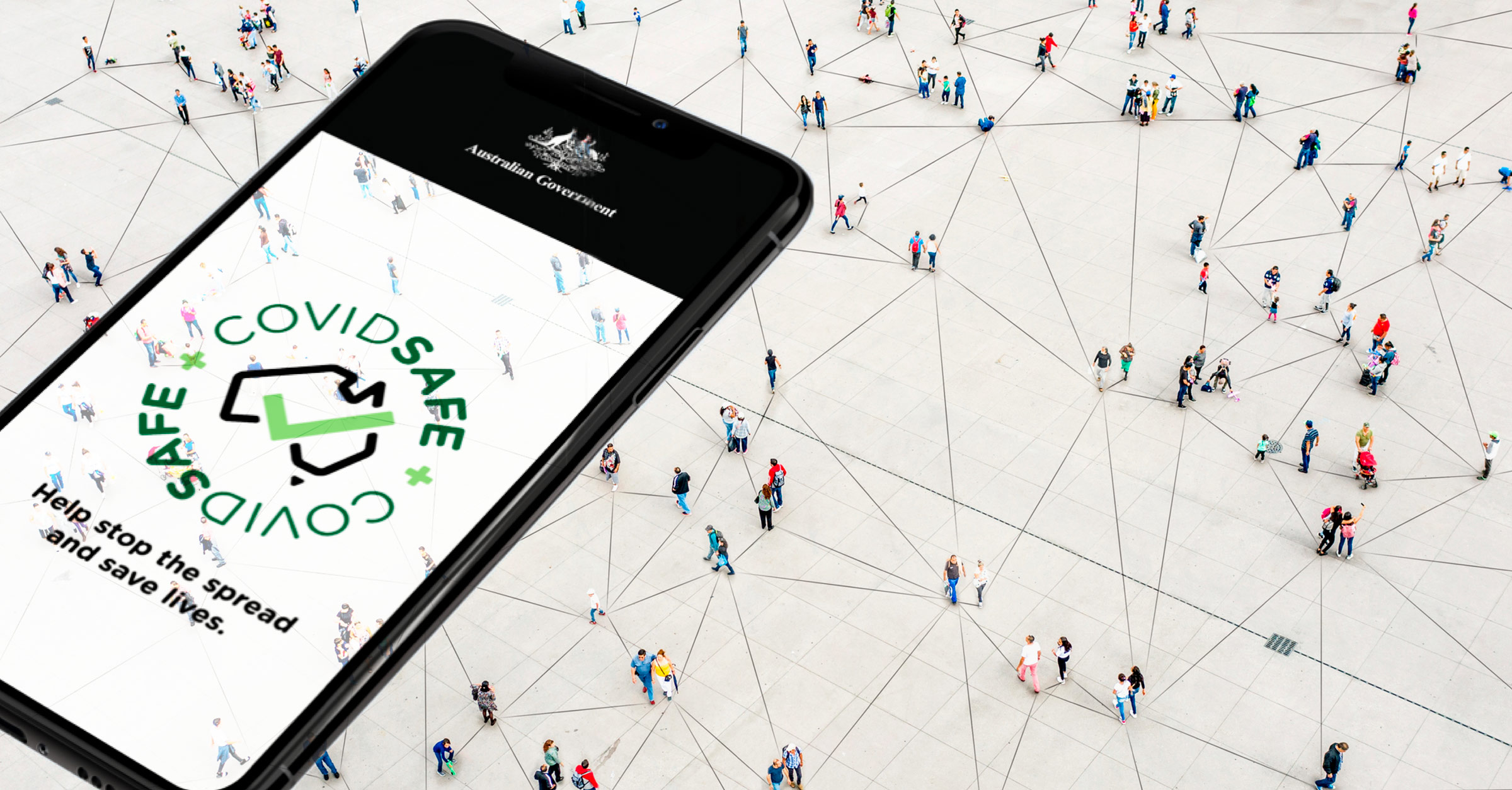
Recognising the social, civil and governance impact of the COVID19 crisis, COVIDSafe: Perceptions and Practices highlights how Australian’s are understanding and responding to these changes at a community and personal level.
We want to hear your voice.
This research project responds to the shifting environment of COVID19, exploring questions as they emerge. Questions include:
• From government contact tracing through the COVIDSafe app, to more informal practices such as details at cafes and restaurants, how do Australians respond to their information and locations being monitored and recorded?
• With the emergence of new norms in public space such as mask wearing and social distancing, how have people adjusted to differing understandings of civic responsibility toward public health?
• How is ethnicity, age and background informing responses to public health messaging?
• To what extent do individuals perceive the COVID-19 crisis as bringing about community solidarity. Or, alternately, bringing to the fore existing inequalities?
Against the backdrop of the COVID-19, this research seeks to understand how we negotiate, trust and relate to the government, the community and each other.
You can find out more details about the research through this Participant Information Sheet.
If you are in anyway struggling during the COVID19 crisis, there are a range of free services and support available that can assist you or a loved one at this time that you can access here.
If you would like to get involved with this project, fill out the form below or reach out to project leaders via the contact info provided alongside each bio.
People
Larissa Hjorth
Distinguished Professor and Director, Design and Creative Practice
School: Enabling Capability Platforms
Larissa Hjorth is a digital ethnographer, artist, Distinguished Professor and director of the Design & Creative Practice ECP platform at RMIT University. With Professor Heather Horst, she co-founded the Digital Ethnography Research Centre (DERC). Previously, Hjorth was Deputy Dean, Research & Innovation, in the School of Media & Communication (2013−2016). Hjorth served on the inaugural Australian Research Council (ARC) Engagement & Impact Pilot study assessment panel for humanities and creative practice.
Hjorth studies the socio-cultural dimensions of mobile media and play practices in the Asia-Pacific region with an emphasis on interdisciplinary, collaborative and cross-cultural approaches. She has published a dozen co-authored books, edited over a dozen Handbooks/Companions and has over 40 journal articles.
More recently, Hjorth’s work has become concerned with how we can bring creative, social and design solutions to the growing ageing populations and, in turn, how we might consider scenarios of what it means to die well. She is also studying how our “more-than-human” companions can teach us about new media in everyday life. Hjorth’s last book, Haunting Hands (Oxford Uni Press) looked at how mobile media is being deployed in situations of grief and trauma, her previous book explored how art practice can teach us new acumen into the climate change debate.
Hjorth’s books include Haunting Hands (with Cumiskey 2017), Screen Ecologies (with Pink, Sharp & Williams 2016), Digital Ethnography (Pink et al. 2016) Mobile Media in the Asia-Pacific (2009), Games & Gaming (2010), Online@AsiaPacific (with Arnold 2013), Understanding Social Media (with Hinton 2013), and Gaming in Locative, Social and Mobile Media (with Richardson 2014).
Hugh Davies
Postdoctoral Research Fellow
School: Games
Hugh Davies is an artist, curator and researcher of games and play. His practice explores histories of media devices and cultures of games in the Asia Pacific Region. Awarded a PhD in Art, Design and Architecture from Monash University in 2014, Hugh’s studies in game cultures have been supported with fellowships from Tokyo Art and Space, M+ Museum of Visual Culture and the Hong Kong Design Trust. Hugh is currently a postdoctoral research fellow at RMIT in Melbourne, Australia.
Ingrid Richardson
Professor
School: Media and Communication
Professor Ingrid Richardson has been teaching, supervising and researching in the fields of digital media, mobile media and games for over twenty years. She has a broad interest in the human-technology relation and has published widely on the phenomenology of games and mobile media, digital ethnography and innovative research methods, the relation between technology use and wellbeing, and the cultural effects of urban screens, wearable technologies, virtual and augmented reality, remix culture and web-based content creation and distribution. Ingrid has led or co-led 14 funded research projects, the most recent being an ARC DP [Games of Being Mobile] with Larissa Hjorth. She is contributing co-editor of Studying Mobile Media (Routledge, 2011) and co-author of Gaming in Social, Locative and Mobile Media (Palgrave, 2014), Ambient Play (MIT, 2020), Understanding Games and Game Cultures (Sage, 2020), Exploring Minecraft: Ethnographies of Play and Creativity (Palgrave, forthcoming), and Mobile Media and the Urban Night (Palgrave, forthcoming). Ingrid brings ten years’ experience in university-level HDR management and during this time has actively championed and supported creative methods and practice-led postgraduate research. Over the past five years she has also developed a passion for teaching critical web literacy skills to undergraduate students across all disciplines.
Ruth De Souza
VC Research Fellow
School: School of Art
Dr Ruth De Souza (FACN) is a Vice-Chancellor’s Fellow at RMIT, based in the School of Art and DCP Research Platform. She is a nurse, academic and a community-engaged researcher in gender, race, health and digital technologies. Ruth’s Fellowship will engage health professionals in finding new ways to understand, co-design and implement sustainable cultural safety initiatives in a range of health contexts in response to health inequities.
Prior to moving to Australia in 2013, Ruth worked at AUT University where she taught in the School of Nursing, led the Bachelor of Health Promotion, and was a Senior Research Fellow at the Centre for Asian and Migrant Health Research. Since her arrival in Australia, Ruth has undertaken a wide range of roles, including leading an undergraduate nursing program at Monash University’s Berwick campus; spearheading a unique community-engaged joint research appointment with North Richmond Community Health exploring how wearables and other digital technologies are perceived by people from culturally and linguistically different backgrounds and co-ordinating an interdisciplinary Data Systems and Society Research Network across the University of Melbourne. Ruth has also investigated the applicability of cultural safety in Australia, working closely with The Congress of Aboriginal and Torres Strait Islander Nurses and Midwives (CATSINaM), presenting at their National Professional Development Conferences and delivering training on cultural safety. She has also undertaken a two-year cultural safety project with cohealth (a not-for-profit community health organisation) and Our Watch who work for the primary prevention of violence against women and their children.
Mark Andrejevic
Professor
School: Media, Film, and Journalism
Mark Andrejevic (Professor, School of Media, Film, and Journalism, Monash University) contributes expertise in the social and cultural implications of data mining, and online monitoring. He writes about monitoring and data mining from a socio-cultural perspective, and is the author of three monographs and more than 60 academic articles and book chapters. He was the Chief Investigator for an ARC QEII Fellowship investigating public attitudes toward the collection of personal information online ($390,000; 2010 – 2014).
Andrejevic has experience conducting both quantitative and qualitative research and is experienced in the focus group and interview methodologies. His work on the personal information project, for example, generated a book, 11 articles and book chapters, and a report on Australian attitudes toward online privacy that was launched by the Federal Privacy Commissioner.
Creative Agency
Networking Creative Change-Makers
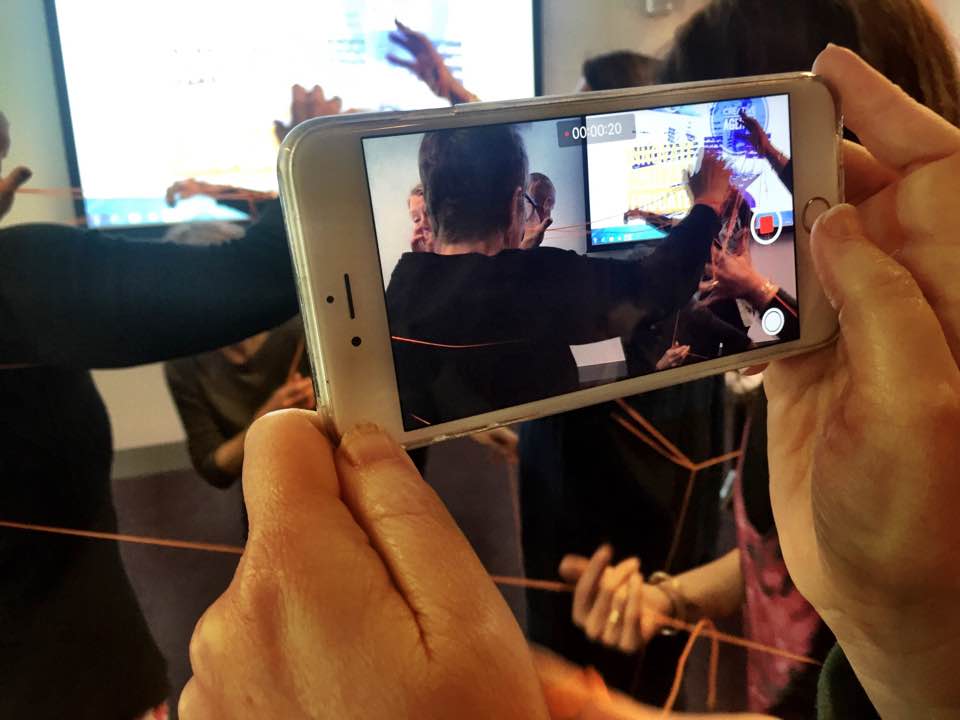
Creative Agency is a community of creative makers, academics, industry professionals and organisations committed to arts, education and social change. The Agency is both a virtual and material co-share workspace in and beyond Melbourne’s urban centre where creativity finds expression through co-designed research, events and cross-sector partnerships.
Visit the Creative Agency website.
If you would like to get involved with this project, fill out the form below or reach out to project leaders via the contact info provided alongside each bio.
People
Anne Harris
Associate Professor and Principal Research Fellow, Design and Social Context
School: Education
+61 3 9925 4459
RMIT staff profile
anne.harris@rmit.edu.au
Dr Anne M. Harris, PhD is an Associate Professor and Vice Chancellor’s Principal Research Fellow at RMIT University, and an Australian Research Council Future Fellow (2017 – 2021) studying intercultural creativity. Anne is an Honorary Research Fellow at University of Nottingham (UK) and an Adjunct Professor at Monash University (Australia).
Their research is in the areas of gender, creativity, diversity, performance and emerging digital ethnographies. Anne is a native New Yorker and has worked professionally as a playwright, teaching artist and journalist in the USA and Australia. They have authored or co-authored over 60 articles and 13 books on creativity, arts, and non-dominant culture formations, the latest being Queering Families/Schooling Publics: Keywords (with Stacy Holman Jones, Sandra Faulkner, and Eloise Brook, Routledge 2017). Anne is the creator and series editor of the Palgrave book series Creativity, Education and the Arts, and recently completed an Australian Research Council DECRA on the commodification of creativity.
The HASH Network
Interdisciplinary health research

The HASH (Health, Arts, Social sciences and Humanities) Network brings together collaborators from the social sciences, humanities, medicine, arts, and science and technology. It will draw on contributions from a wide range of academic researchers, health practitioners, health service users, and early career researchers. HASH aims to ignite creative connections and collaborations among members.
Visit the HASH Network website.
If you would like to get involved with this project, fill out the form below or reach out to project leaders via the contact info provided alongside each bio.
People
Renata Kokanovic
Convener, The HEALTH Network; Professor
School: Global, Urban & Social Studies
Professor Renata Kokanovic’s works at the intersections of health, society and medicine, with a particular focus on interdisciplinary mental health research.She combines empirical research with interdisciplinary theoretical and methodological scholarship while collaborating with industry partners and health care users to facilitate greater understanding of lived experiences of health and illness.
She co-founded Healthtalk Australia, a digital repository of health and illness narrative accounts designed to support people experiencing ill health, and inform health and social care delivery and policy.
Her Place Women's Museum Research Project
A discussion on feminism in the 21st century
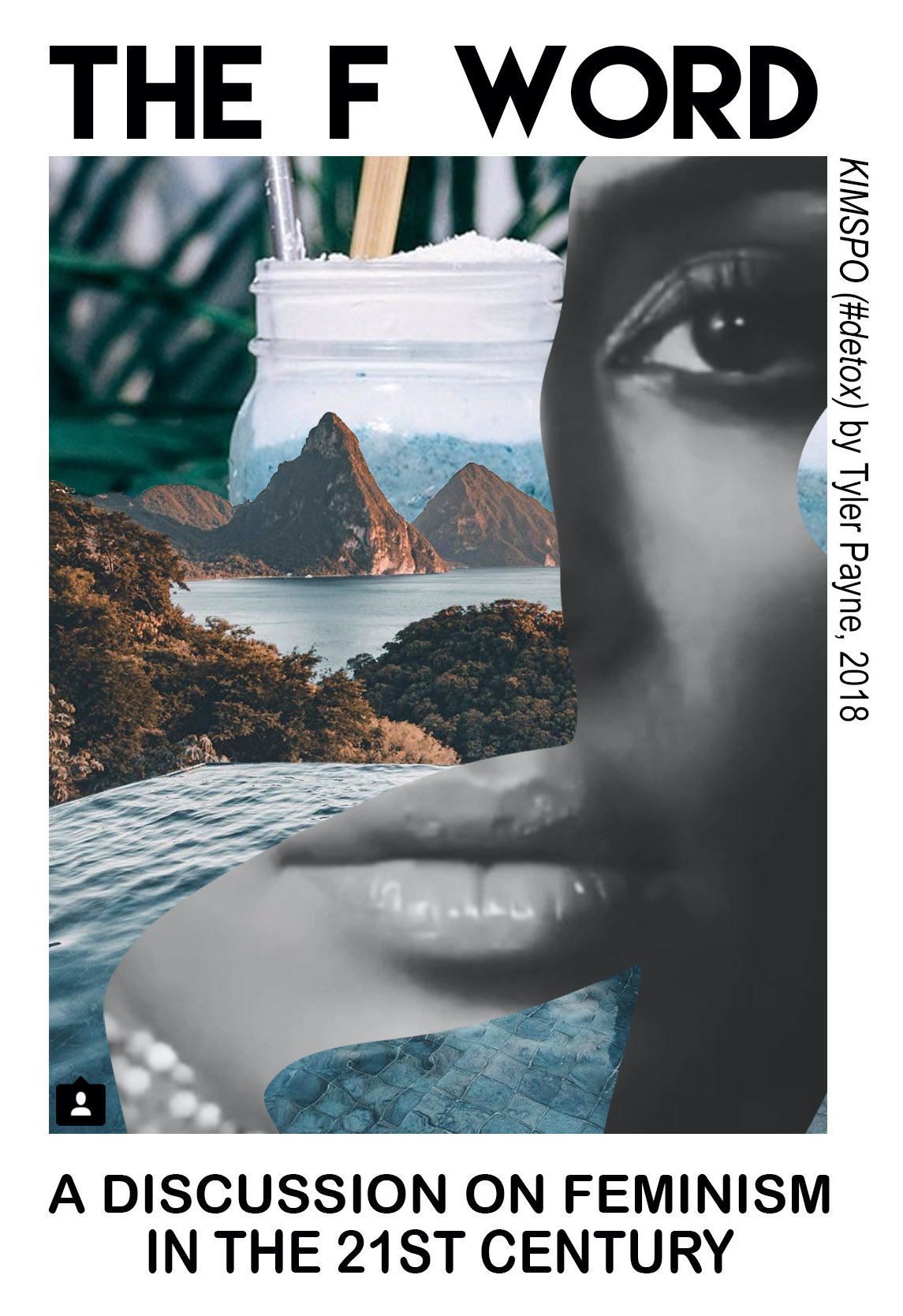
This project addressed a central problem: how can a women’s museum engage diverse communities and age groups in the twenty-first century, in the context of changing ideas of gender and feminism?
The basis for the Her Place Museum is the well-documented lack of representation of women in mainstream collecting institutions in Australia and in broader narratives of Australian history. To expand this understanding, RMIT researchers and students collaborated with Her Place and ran two workshops involving 40 key stakeholders. In these workshops, stakeholders developed engagement strategies for young people and people from CALD communities; a communication strategy for cross-generational dialogue; and recommendations for a digital platform.
If you would like to get involved with this project, fill out the form below or reach out to project leaders via the contact info provided alongside each bio.
People
Grace McQuilten
Senior Lecturer
School: School of Art
Grace is a published art historian, curator and artist with expertise in contemporary art and design, public art, social practice, social enterprise and community development.
Grace’s research challenges and transforms conventional understandings of the relationship between margin and centre in relation to the cultural economy, contemporary art practice and art history. She has pioneered work on the field of art-based social enterprise in Australia, and has worked extensively in migrant and refugee settlement. She has a multidisciplinary approach that engages with a range of fields including art, design, architecture, sustainability, sociology, business and international development. In addition, through her leadership of the CAST research group, she collaborates with industry and across disciplines to develop research projects that address issues of access, equity and justice.
Grace is a Chief Investigator on the ARC Discovery Project ‘The underworld: outsider artists and the reformulation of Australian art,’ (2018−2020) and the ARC Discovery Project ‘Art-based Social Enterprises and Marginalised Young Peoples Transitions,’ (2017−2019). She has published numerous articles in refereed and unrefereed publications, published creative works in literary journals, authored exhibition catalogues and worked as an editor on local newspapers and engaged widely with local and national media. Grace is the founding CEO & a current Board Director of The Social Studio, a fashion and art based social enterprise working with young people from humanitarian migrant backgrounds in Melbourne.
Social Play Tool Kit
Encouraging social play and games literacies in the classroom.
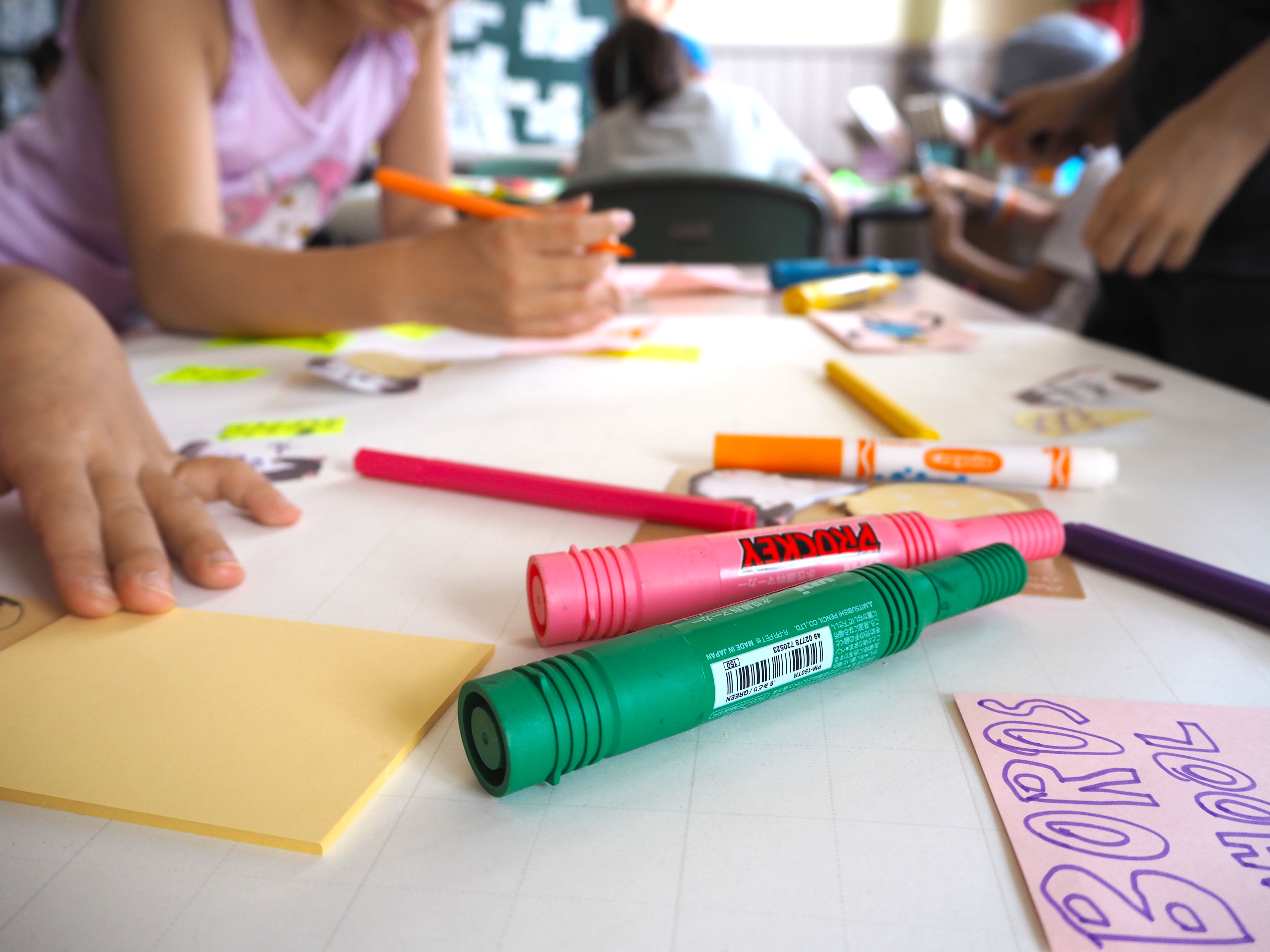
Play is a source of culture, a form of expression, and a creative way of engaging with the world. It is a crucial human ability for adaptation and expression.
In collaboration with our research partners and young people, we have developed a Social Play Tool Kit that encourages social play and game literacies in the classroom. Exploring socially-engaged gameplay and creativity across digital and material contexts, these tools are freely downloadable PDF’s for use in a variety of Primary School age learning environments.
INTRODUCTION TO THE SOCIAL PLAY PROJECT
If you would like to get involved with this project, fill out the form below or reach out to project leaders via the contact info provided alongside each bio.
People
Larissa Hjorth
Distinguished Professor and Director, Design and Creative Practice
School: Enabling Capability Platforms
Larissa Hjorth is a digital ethnographer, artist, Distinguished Professor and director of the Design & Creative Practice ECP platform at RMIT University. With Professor Heather Horst, she co-founded the Digital Ethnography Research Centre (DERC). Previously, Hjorth was Deputy Dean, Research & Innovation, in the School of Media & Communication (2013−2016). Hjorth served on the inaugural Australian Research Council (ARC) Engagement & Impact Pilot study assessment panel for humanities and creative practice.
Hjorth studies the socio-cultural dimensions of mobile media and play practices in the Asia-Pacific region with an emphasis on interdisciplinary, collaborative and cross-cultural approaches. She has published a dozen co-authored books, edited over a dozen Handbooks/Companions and has over 40 journal articles.
More recently, Hjorth’s work has become concerned with how we can bring creative, social and design solutions to the growing ageing populations and, in turn, how we might consider scenarios of what it means to die well. She is also studying how our “more-than-human” companions can teach us about new media in everyday life. Hjorth’s last book, Haunting Hands (Oxford Uni Press) looked at how mobile media is being deployed in situations of grief and trauma, her previous book explored how art practice can teach us new acumen into the climate change debate.
Hjorth’s books include Haunting Hands (with Cumiskey 2017), Screen Ecologies (with Pink, Sharp & Williams 2016), Digital Ethnography (Pink et al. 2016) Mobile Media in the Asia-Pacific (2009), Games & Gaming (2010), Online@AsiaPacific (with Arnold 2013), Understanding Social Media (with Hinton 2013), and Gaming in Locative, Social and Mobile Media (with Richardson 2014).
The Spatial Capability Cluster at RMIT (SCCAR)
Phase 2
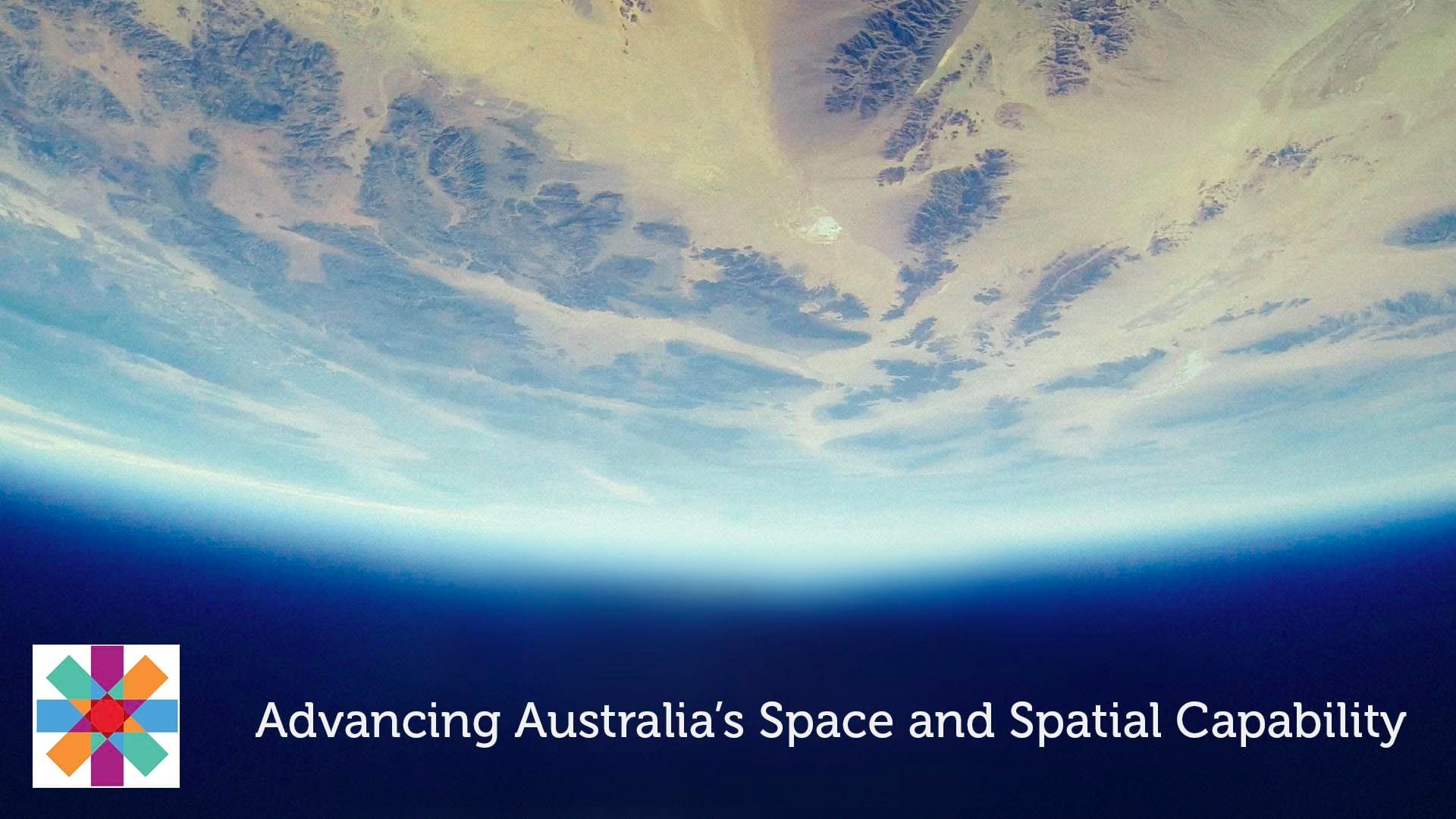
The SASCCAR project is working to establish a “Space and Spatial Capability Cluster” at RMIT. The cluster aims to provide a sustainable and interdisciplinary community of practice in “space” and “spatial”, bringing together spatial experts across RMIT University, and supporting early-career researchers and HDR students working in the spatial sciences. The cluster aims to enhance collaboration, increase the visibility of RMIT’s world-class expertise in spatial knowledge, and ultimately support relevant applications to large interdisciplinary funding schemes, including CRCs and Centres of Excellence.
Phase 2 of the SASCCAR project saw skills development workshops on mapping with Tableau; Frontier SI workshop; Workshop with Mark McMillan on Indigenous Knowledge of Place; Joint workshop with the Sir Lawrence Wackett Centre and defence industry (Textron) on major Next Gen Technology Fund application; as well as a presentation at the 2019 Engaging For Impact Event on Advancing Space and Spatial Capabilities with Dr Amanda Caples.
Space is a USD$345 billion global industry which has doubled over the previous decade, with strong growth expected to continue in the medium term. Australia’s Space and Spatial industries are undergoing a rapid change and growth including everything from rockets, satellites and sensors, through to the specialists who derive insights from space based information such as location data and satellite imagery. These diverse technologies are having more impact than ever across Australia’s economy, particularly our Agricultural, mining, environmental, health, transport, defence, and built environment industries.
You can find out more about the SASCCAR project here.
If you would like to get involved with this project, fill out the form below or reach out to project leaders via the contact info provided alongside each bio.
People
Matt Duckham
Professor
School: Geospatial Science
Matt Duckham is a Professor of Geospatial Sciences at RMIT University. At RMIT, he has occupied a number of senior leadership roles including: Acting Dean STEMM Diversity and Inclusion, Associate Dean of Geospatial Science, and Deputy Head of the School of Mathematical and Geospatial Sciences, Science Director for the CRC for Spatial Information (CRCSI) Rapid Spatial Analytics Program. Prior to joining RMIT, Matt was Professor in Geographic Information Science within the department of Infrastructure Engineering at the University of Melbourne, when he also held a visiting Professor position and the University of Greenwich.
Matts research focuses on the area of Geographic Information Science, particularly distributed and robust computation and visualisation with uncertain spatial and spatiotemporal information, within the domain of mobile, location aware and sensor enabled systems. He has taught a range of undergraduate and postgraduate courses in connection with spatial computing, in particular, spatial visualisation and spatial databases.
Understanding Roblox Play
We seek young Roblox players to interview!
We are seeking participants between the ages of 9 and 18 who play Roblox for one hour studies.
Roblox is a multiplayer online platform and game creation system. By enabling its users to playfully design and share their own games, as well as to play games created by others, Roblox attracts millions of young players each year. Despite its growing presence, very little research into Roblox play in Australia has taken place. So in this study, we aim to examine how young people incorporate Roblox play in their social and everyday lives. This is the first study to examine the social uses of Roblox play gaming in Australia, and with it, we aim to understand the Roblox phenomenon as a new model of social play within contemporary games culture.
Our study involves two methods of collecting data: Observation and/or Interview.
-
Observation
For half an hour, we observe individual participants as they play Roblox at home. We ask brief questions about how they interact with the game. With prior permission, we may photograph players or their screens as visual evidence to show exactly how participants are interacting with devices and screens. This is crucial in determining the tactile, gestural and haptic nature of their play. - Interview
For half an hour, we talk with participants about their game play. Topics covered in the interview with players may include the following:
• Do you play, or have you played other games in the past?
• Do you use Roblox as a social tool? If so, then how?
• Do you play Roblox with friend and/or family members?
• If you were to explain why Roblox matters to a non-player, what would you say?
You can choose to only do the interview and not the observation if you wish. All participation is entirely voluntary and completely anonymous. Your privacy is our concern.
Through this research, we hope to enrich community and policy understanding of the media literacies and social inclusion practices emerging in and around Roblox. We anticipate that this may inform media effects debates and heighten understanding of games as a core aspects of contemporary everyday practice.
You can find our more about the research here.
Want to be involved?
It’s easy. Just email the research contact Dr Hugh Davies:
hugh.davies@rmit.edu.au
If you would like to get involved with this project, fill out the form below or reach out to project leaders via the contact info provided alongside each bio.
People
Larissa Hjorth
Distinguished Professor and Director, Design and Creative Practice
School: Enabling Capability Platforms
Larissa Hjorth is a digital ethnographer, artist, Distinguished Professor and director of the Design & Creative Practice ECP platform at RMIT University. With Professor Heather Horst, she co-founded the Digital Ethnography Research Centre (DERC). Previously, Hjorth was Deputy Dean, Research & Innovation, in the School of Media & Communication (2013−2016). Hjorth served on the inaugural Australian Research Council (ARC) Engagement & Impact Pilot study assessment panel for humanities and creative practice.
Hjorth studies the socio-cultural dimensions of mobile media and play practices in the Asia-Pacific region with an emphasis on interdisciplinary, collaborative and cross-cultural approaches. She has published a dozen co-authored books, edited over a dozen Handbooks/Companions and has over 40 journal articles.
More recently, Hjorth’s work has become concerned with how we can bring creative, social and design solutions to the growing ageing populations and, in turn, how we might consider scenarios of what it means to die well. She is also studying how our “more-than-human” companions can teach us about new media in everyday life. Hjorth’s last book, Haunting Hands (Oxford Uni Press) looked at how mobile media is being deployed in situations of grief and trauma, her previous book explored how art practice can teach us new acumen into the climate change debate.
Hjorth’s books include Haunting Hands (with Cumiskey 2017), Screen Ecologies (with Pink, Sharp & Williams 2016), Digital Ethnography (Pink et al. 2016) Mobile Media in the Asia-Pacific (2009), Games & Gaming (2010), Online@AsiaPacific (with Arnold 2013), Understanding Social Media (with Hinton 2013), and Gaming in Locative, Social and Mobile Media (with Richardson 2014).
Hugh Davies
Postdoctoral Research Fellow
School: Games
Hugh Davies is an artist, curator and researcher of games and play. His practice explores histories of media devices and cultures of games in the Asia Pacific Region. Awarded a PhD in Art, Design and Architecture from Monash University in 2014, Hugh’s studies in game cultures have been supported with fellowships from Tokyo Art and Space, M+ Museum of Visual Culture and the Hong Kong Design Trust. Hugh is currently a postdoctoral research fellow at RMIT in Melbourne, Australia.
Young people and the Anthropocene
Critical perspectives for well-being, resilience and enterprise
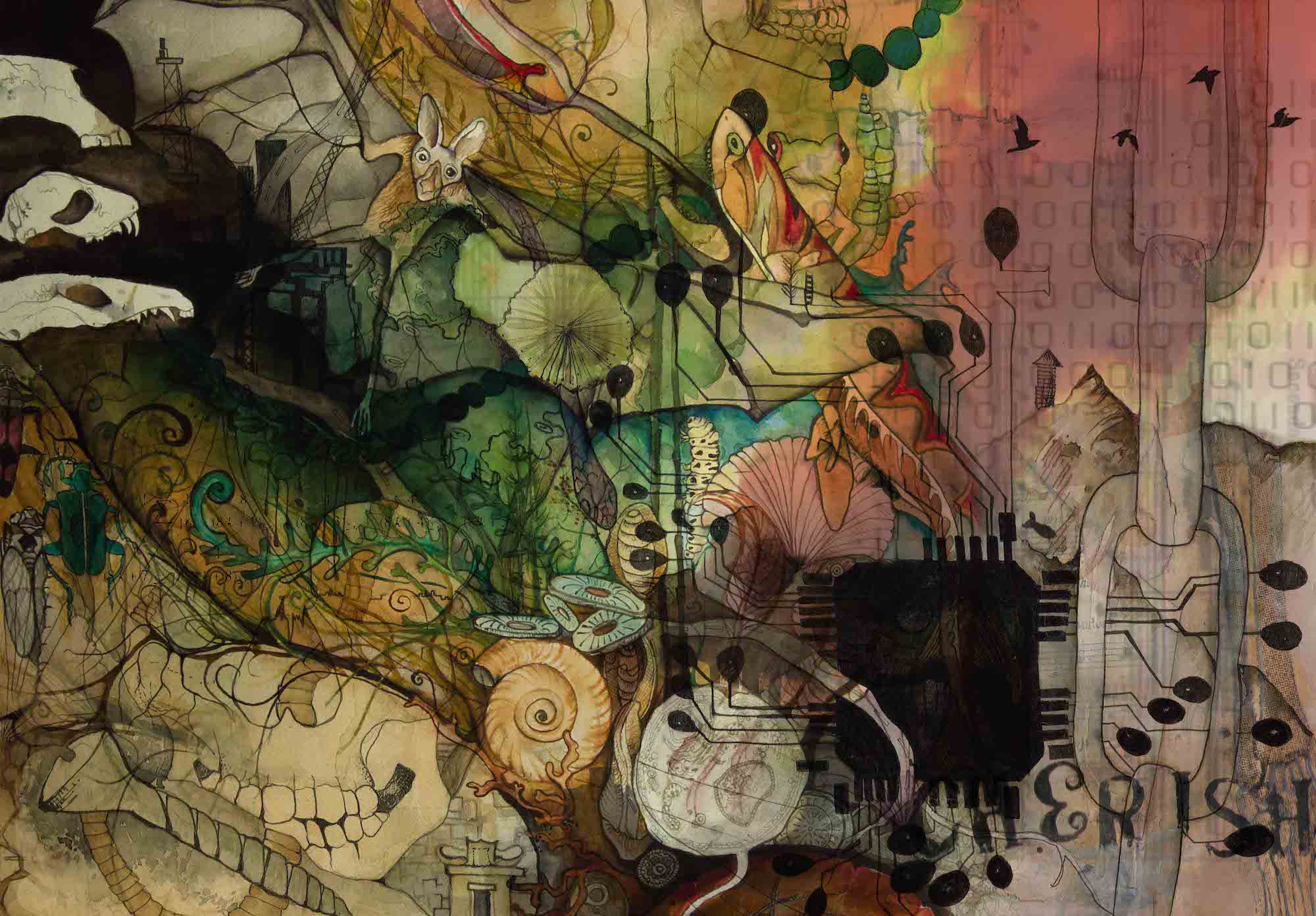
The social sciences and humanities must critically engage with the debates about the Anthropocene since humans are by definition driving the issues facing the these planetary-wide changes and the consequences that ensue. We need to find new ways of thinking through and understanding the unfolding crisis of planetary environmental systems by developing divergent forms and methods of communicating.
This project has as its aim instigating an international agenda for collaborative knowledge production and exchange that centre around well-being, resilience and enterprise for children and young people around the globe.
You can find out more about Young people and the Anthropocene here.
If you would like to get involved with this project, fill out the form below or reach out to project leaders via the contact info provided alongside each bio.
People
Peter Kelly
Professor
School: Education
Peter Kelly is Professor of Education and Head of UNESCO UNEVOC at RMIT University. His recent former role was as Associate Dean, Research and Innovation, in the School of Education at RMIT. Previous positions include at Edge Hill University (UK), Deakin University, Monash University, the University of Queensland (UQ).
Kelly is a social researcher who has published extensively on young people, social theory and globalisation. His current research interests include a critical engagement with young people and new cultures of education/work/democracy in the context of the aftermath of the Global Financial Crisis, and with the challenges associated with the emergence of the Anthropocene. He is currently the lead CI on an ARC Discovery Project (DP 170100547) Art Based Social Enterprises and Marginalised Young People’s Transitions.
With colleagues, Kelly leads a research program titled Young People’s Well-being, Resilience and Enterprise: Critical Perspectives for the Anthropocene: https://youngpeopleanthropocene.org/
Kelly has published extensively on young people and the practice of youth studies. His books include: Working in Jamie’s Kitchen: Salvation, Passion and Young Workers (2009), The Self as Enterprise: Foucault and the “Spirit” of 21st Century Capitalism (2013), The Moral Geographies of Children, Young People and Food: Beyond Jamie’s School Dinners (2014), A Critical Youth Studies for the 21st Century (2015), Young People and the Aesthetics of Health Promotion: Beyond Reason, Rationality and Risk (2016), and Neo-Liberalism and Austerity: The Moral Economies of Young People’s Health and Well-Being (2017). He has two recently published books: Rethinking Young People’s Marginalisation: Beyond neo-Liberal Futures? (2018), Young People and the Politics of Outrage and Hope (2018).
News and updates
Facett – Winner 2018 Good Design Award of the Year
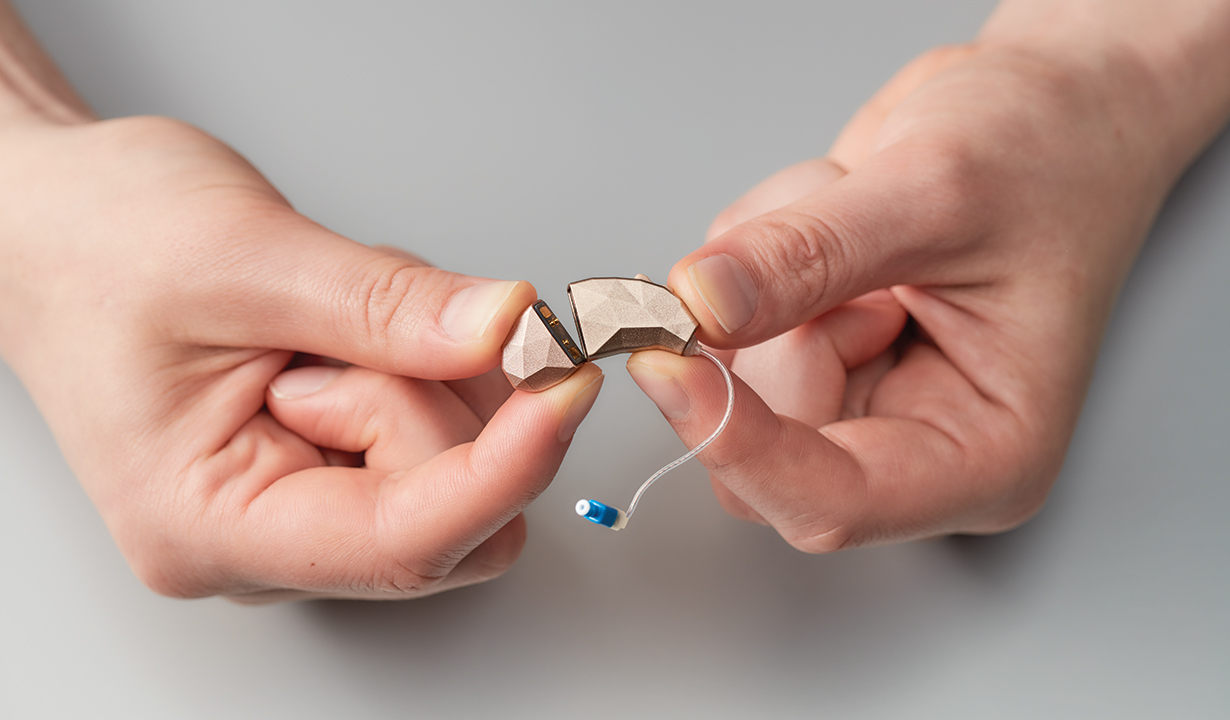
The overall winner of the 2018 Good Design Awards, was Blamey Saunders’ Facett hearing aid, which also took out the CSIRO Design Innovation Award and Best in Class for Product Design and Social Impact. The Blamey Saunders hears Facett hearing aid was designed by Professor Peter Blamey, Yaniv Kaufman and RMIT University’s very own Leah Heiss. Read more
RMIT Europe Symposium: Rethinking Healthcare for the Future

Exploring how design and technology can transform healthcare for an ageing population. Read more
RMIT Europe Workshop: Creative Methods for Social Mapping
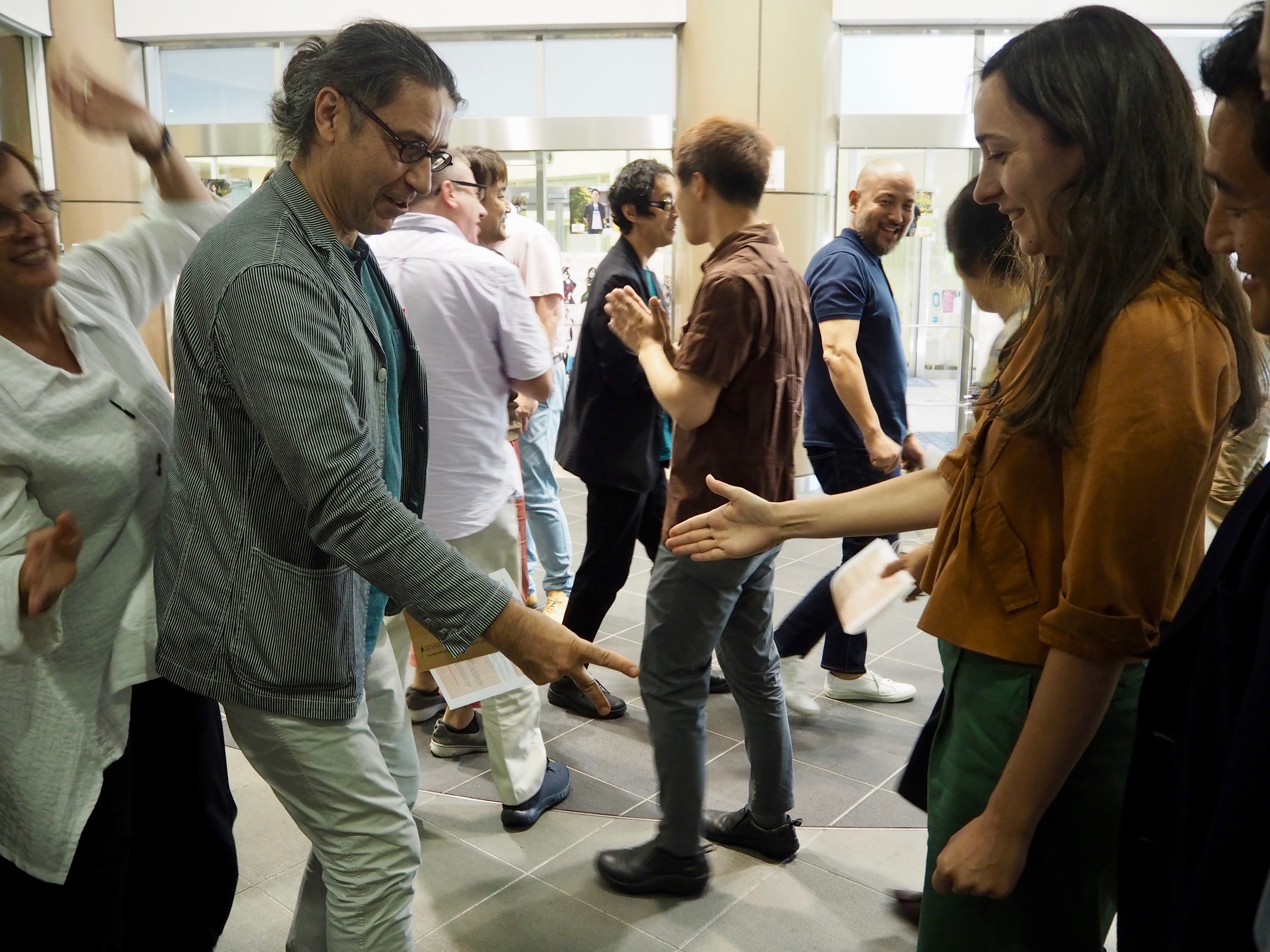
This workshop discusses best practices, provocative elements of, and ideas for the future of creative methods for impactful research. Read more
DCP Lectures | Dr Anne Galloway
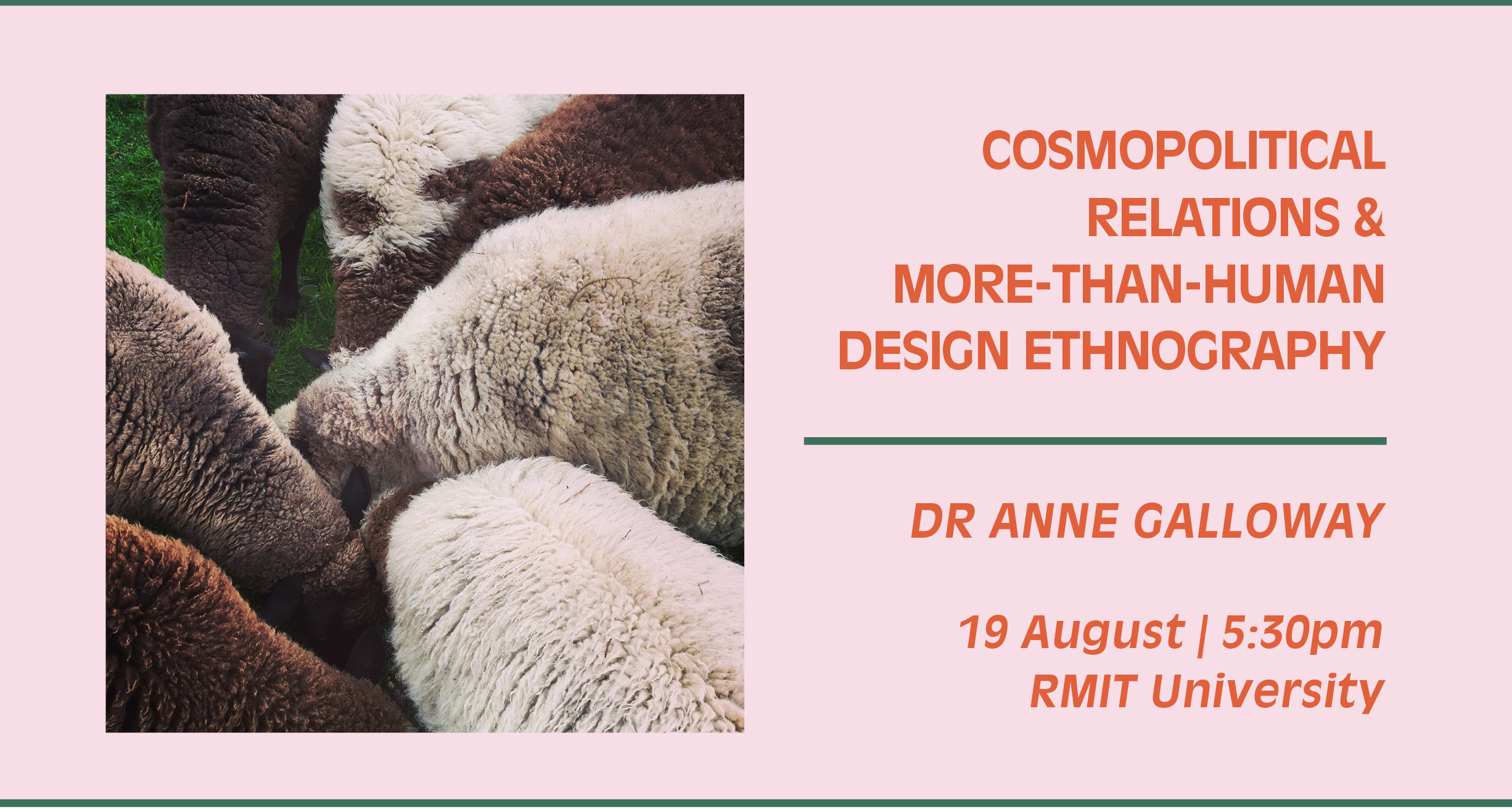
Cosmopolitical Relations & More-Than-Human Design Ethnography
Monday 19 August, 5:30 – 6:30pm
RMIT City Campus, Building 80.10.16 Read more
2nd MARC END OF LIFE CARE FORUM
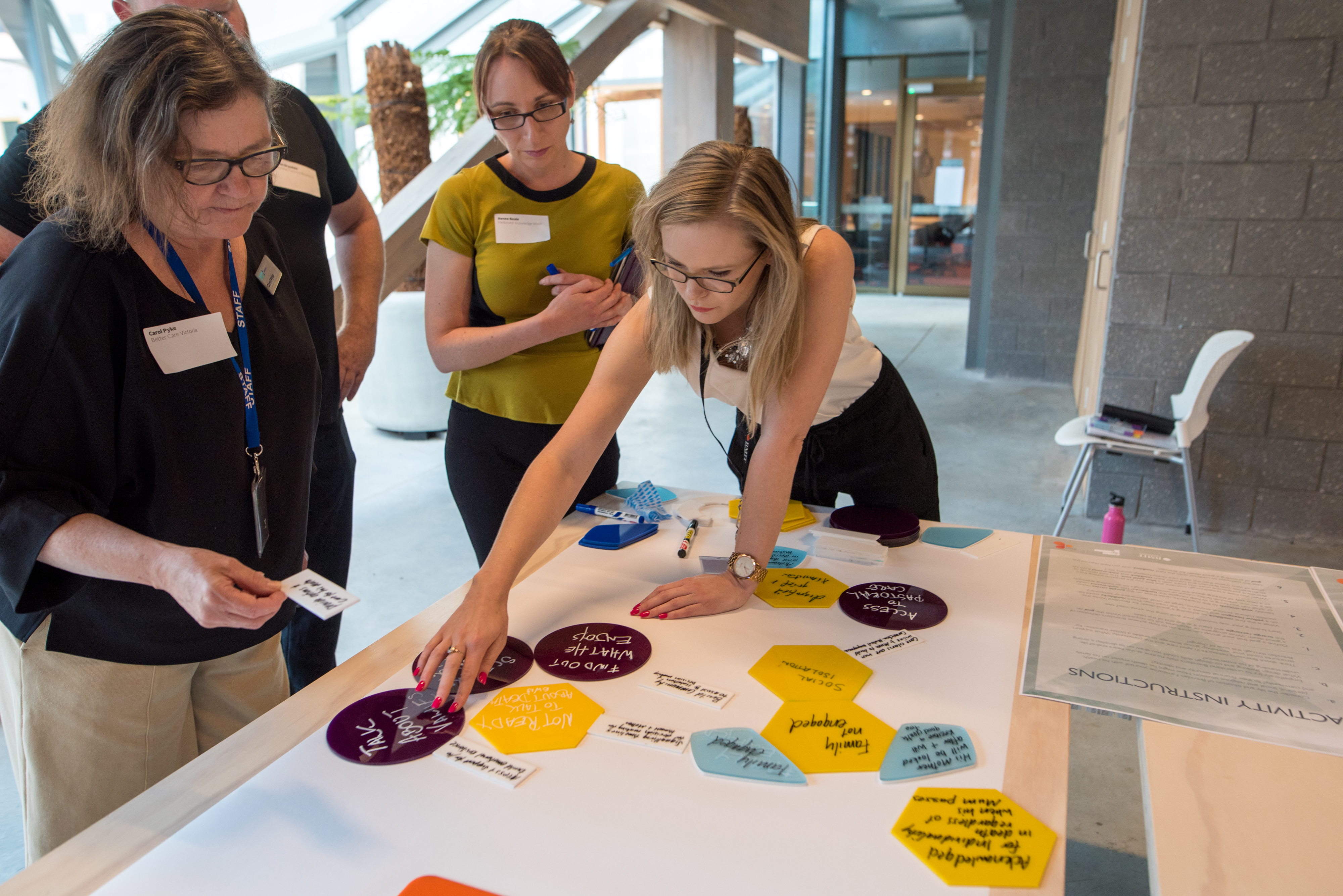
The Melbourne Ageing Research Collaboration (MARC) is hosting the 2nd MARC End of Life Care Forum at RMIT University. Speakers will provide detailed examples of recent research to stimulate ideas. Read more
HDR Opportunity: Dr Anne Galloway Workshop
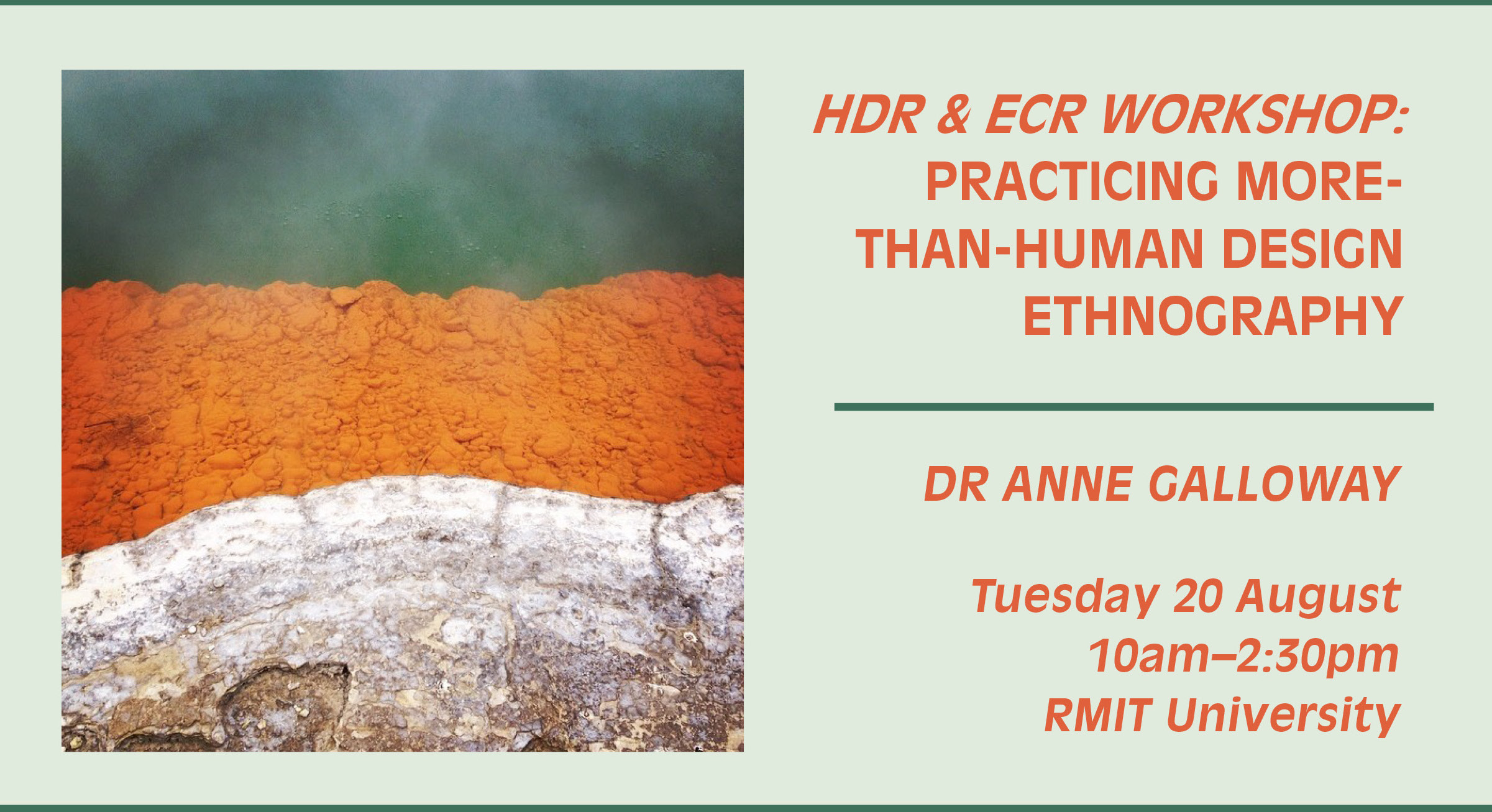
Practicing More-than-human Design Ethnography Workshop
Dr Anne Galloway, School of Design, Victoria University of Wellington, NZ
Tuesday 20 August 2019, RMIT City Campus Read more
Shortlisted teams announced
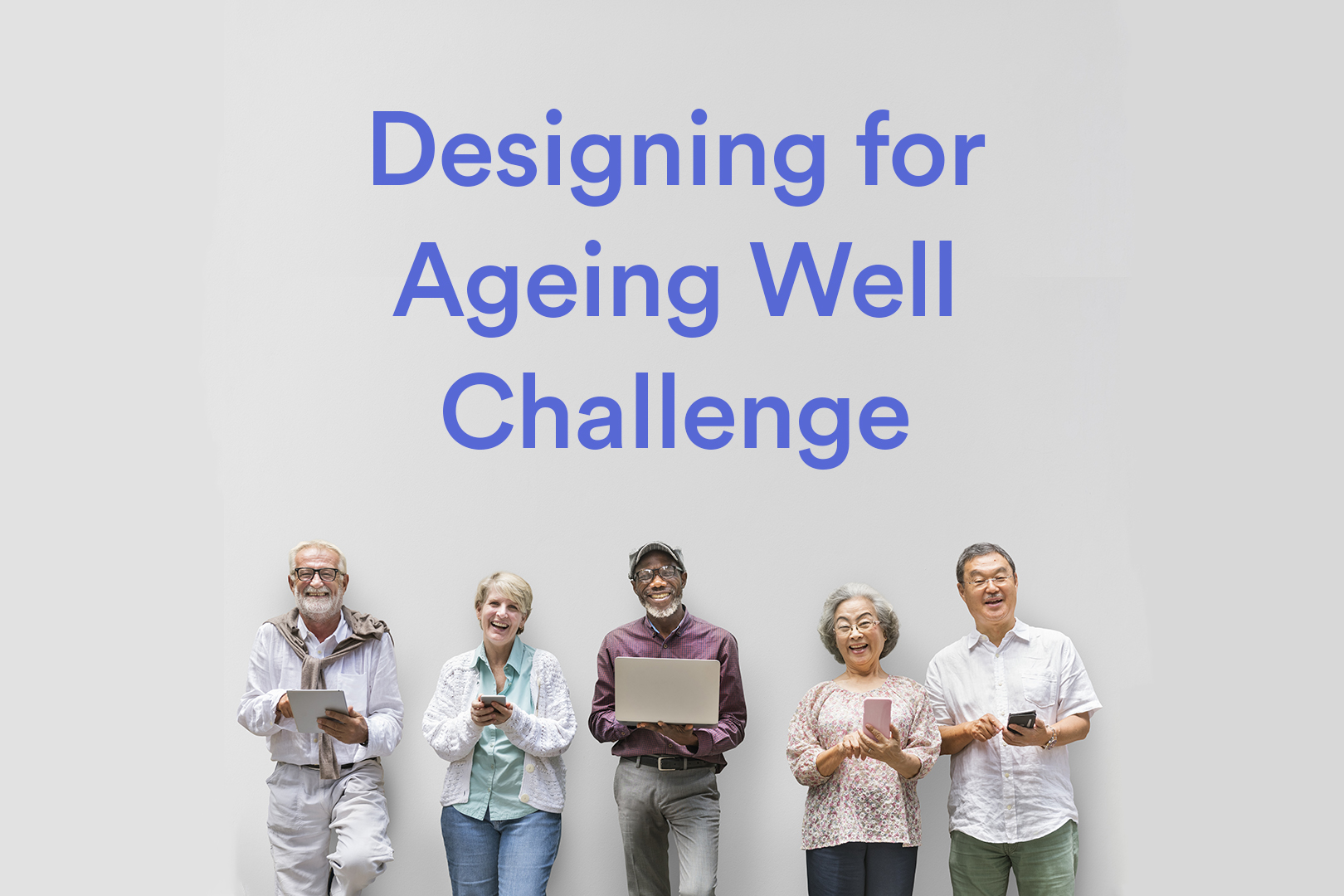
In September 2018 the DCP launched its first Design Challenge, the Designing for Ageing Well Challenge. This called for interdisciplinary teams to develop innovative ideas that reimagine the future of digital health, social innovation and ageing well. We are excited to announce our four shortlisted teams and their projects here. Read more
VC FELLOW HIGHLIGHT: NATALIE HENDRY
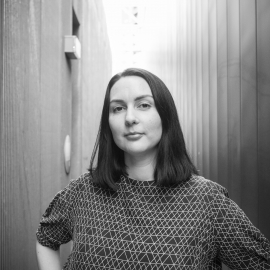
Natalie Hendry
Vice-Chancellor’s Fellow in the School of Media and Communications Read more
WrICE Program Partners with Leading Asian Literary Centre
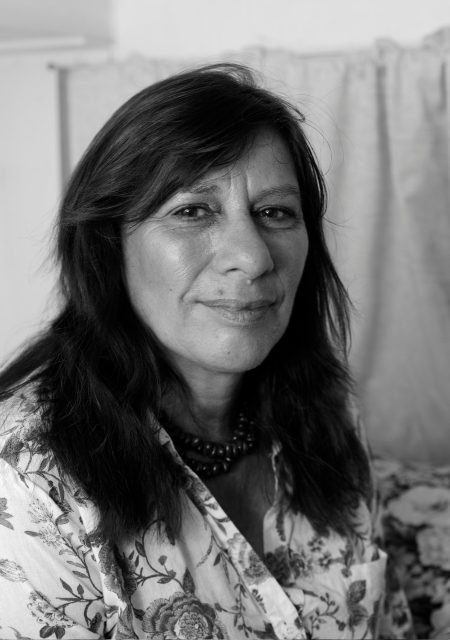
RMIT’s Writers Immersion and Cultural Exchange Program (WrICE), now in its fifth year, will partner with the Jakarta Post Writing Center in 2018. Read more
People
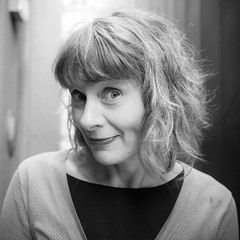
Larissa Hjorth is a digital ethnographer, artist, Distinguished Professor and director of the Design & Creative Practice ECP platform at RMIT University. With Professor Heather Horst, she co-founded the Digital Ethnography Research Centre (DERC). Previously, Hjorth was Deputy Dean, Research & Innovation, in the School of Media & Communication (2013−2016). Hjorth served on the inaugural Australian Research Council (ARC) Engagement & Impact Pilot study assessment panel for humanities and creative practice.
Hjorth studies the socio-cultural dimensions of mobile media and play practices in the Asia-Pacific region with an emphasis on interdisciplinary, collaborative and cross-cultural approaches. She has published a dozen co-authored books, edited over a dozen Handbooks/Companions and has over 40 journal articles.
More recently, Hjorth’s work has become concerned with how we can bring creative, social and design solutions to the growing ageing populations and, in turn, how we might consider scenarios of what it means to die well. She is also studying how our “more-than-human” companions can teach us about new media in everyday life. Hjorth’s last book, Haunting Hands (Oxford Uni Press) looked at how mobile media is being deployed in situations of grief and trauma, her previous book explored how art practice can teach us new acumen into the climate change debate.
Hjorth’s books include Haunting Hands (with Cumiskey 2017), Screen Ecologies (with Pink, Sharp & Williams 2016), Digital Ethnography (Pink et al. 2016) Mobile Media in the Asia-Pacific (2009), Games & Gaming (2010), Online@AsiaPacific (with Arnold 2013), Understanding Social Media (with Hinton 2013), and Gaming in Locative, Social and Mobile Media (with Richardson 2014).
Botanist, quantitative plant ecologist; Research Fellow, ICON Science, Centre for Urban Research, RMIT University Melbourne. Freya is a plant ecologist working as a Research Fellow at RMIT on an ARC-Linkage project which focuses on designing urban green spaces for human wellbeing and for biodiversity.
Freya is a botanist whose professional work has spanned many Australian ecosystems and she has a thorough knowledge of Australian native flora. Her PhD focused on building and evaluating quantitative predictive models of plant growth. She also has experience working for the State Government on developing and implementing long term vegetation monitoring programs. Her current research at RMIT focuses on evaluating how urban green spaces influence human wellbeing but also how plant choice in cities influences other organisms like birds, bees and butterflies. Freya is passionate about plants and interested in various ways plants can be wholly appreciated and incorporated into urban areas.

Dr Jaz Hee-jeong Choi is a Vice-Chancellor’s Senior Research Fellow at the Digital Ethnography Research Centre at RMIT. Previously, she was a Founding Member and the Director of the QUT Urban Informatics Research Lab, a transdisciplinary research group exploring and designing at the intersection of people, places, and technologies. She also founded the SIGCHI FoodCHI Network.
She is an advocate for transdisciplinary research, carefully balancing creativity and criticality. Her approach to urban sustainability recognises ‘play’ as the core of transformative interactions in cities as complex techno-social networks. She builds on this to explore how various forms of digital and playful experiences are designed and evolve in different cultural contexts. Her current research explores designing with and for care for liveable and equitable urban futures across three inter-related domains: wellbeing and ageing; impactful research methods, and; co-creative urban transformation.
She has collaborated with leading international researchers, published in books and journals across various disciplines, and given invited talks at major international conferences including the inaugural Global Social Economy Forum in 2013 and the opening keynote at the 2010 UNESCO Creative Cities Conference.
Peter Kelly is Professor of Education and Head of UNESCO UNEVOC at RMIT University. His recent former role was as Associate Dean, Research and Innovation, in the School of Education at RMIT. Previous positions include at Edge Hill University (UK), Deakin University, Monash University, the University of Queensland (UQ).
Kelly is a social researcher who has published extensively on young people, social theory and globalisation. His current research interests include a critical engagement with young people and new cultures of education/work/democracy in the context of the aftermath of the Global Financial Crisis, and with the challenges associated with the emergence of the Anthropocene. He is currently the lead CI on an ARC Discovery Project (DP 170100547) Art Based Social Enterprises and Marginalised Young People’s Transitions.
With colleagues, Kelly leads a research program titled Young People’s Well-being, Resilience and Enterprise: Critical Perspectives for the Anthropocene: https://youngpeopleanthropocene.org/
Kelly has published extensively on young people and the practice of youth studies. His books include: Working in Jamie’s Kitchen: Salvation, Passion and Young Workers (2009), The Self as Enterprise: Foucault and the “Spirit” of 21st Century Capitalism (2013), The Moral Geographies of Children, Young People and Food: Beyond Jamie’s School Dinners (2014), A Critical Youth Studies for the 21st Century (2015), Young People and the Aesthetics of Health Promotion: Beyond Reason, Rationality and Risk (2016), and Neo-Liberalism and Austerity: The Moral Economies of Young People’s Health and Well-Being (2017). He has two recently published books: Rethinking Young People’s Marginalisation: Beyond neo-Liberal Futures? (2018), Young People and the Politics of Outrage and Hope (2018).
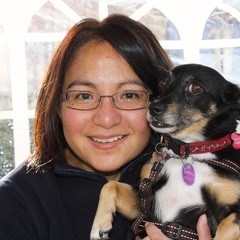
Catherine Gomes is an Associate Professor in RMIT University’s School of Media and Communication. Catherine is an ethnographer whose work contributes to the understanding of the evolving migration, mobility and digital media nexus. As a migration and mobility scholar, Catherine specialises on the social, cultural and communication spaces of transient migrants, especially international students, their wellbeing, their social groups and their digital engagements. Catherine’s work covers the themes of identity, ethnicity, race, memory and gender. She is a specialist on the Asia-Pacific with Australia and Singapore being significant fieldwork sites. Catherine has experience in mixed methods and interdisciplinary research.
Catherine’s work on transient migration and digital technology is advancing work on migration and mobility because of the transient-digital nexus she pioneers. Moreover, as founding editor of Transitions: Journal of Transient Migration Migration (Intellect), editor of the Culture, Media and Communication in Migrant Societies book series (Amsterdam University Press) and lab leader of the Migration and Digital Media Research Lab housed in the Digital Ethnography Research Centre (DERC), Catherine facilitates intellectual discussions with the aim of generating practical outcomes to address and assist policymakers and stakeholders interested in transient migration and international mobility.
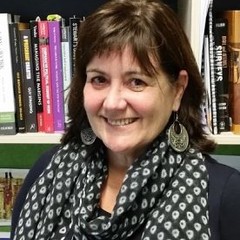
Dr Fiona Macdonald is a Vice-Chancellor’s Senior Research Fellow in the School of Management. Fiona’s research focuses on three interconnected themes: the changing nature of work and employment relationships; regulating for decent work and gender equality; and the political economy of work. The empirical focus of Fiona’s current research on the social care workforce also brings in her long-standing interest in social policy and welfare systems.
In 2016 Fiona was awarded an Australian Research Council Discovery Early Career Researcher Award to examine the workforce challenges of Australia’s new National Disability Insurance Scheme (NDIS). Her research has strong policy relevance and she works closely with industry as well as with national and international networks of employment and care scholars. In 2017 she received the RMIT Vice-Chancellor’s Award for Research impact – Early Career Researcher. Fiona is a member of the Editorial Advisory Board of the recently established International Journal of Care and Caring.
Interdisciplinary conservation scientist, Senior Research Fellow, NESP Threatened Species Recovery Hub; Senior Lecturer, School of Global, Urban and Social Studies; ICON Science Research Group, Centre for Urban Research, RMIT University, Melbourne
Georgia is an ecologist and conservation scientist. She is a Senior Research Fellow in RMIT’s ICON Science Research Group and Centre for Urban Research, and Senior Lecturer in the School of Global, Urban and Social Studies, where she teaches Ecological Foundations of Planning. For over a decade, she has conducted research that addresses the critical challenge of conserving and enhancing biodiversity in urban environments. Her protocol for Biodiversity Sensitive Urban Design, codeveloped with Prof Sarah Bekessy, was a finalist in the Banksia Sustainable Cities Award 2016. Georgia has contributed to and led projects on biodiversity sensitive urban design for greenfield and urban renewal development projects, with local government (City of Melbourne), industry (GHD) and philanthropic (The Myer Foundation) organisations. She also co-leads projects for the National Environmental Science Program’s Threatened Species Recovery Hub and the Victorian Department of Environment, Land, Water and Planning that aim reconnect people with nature in a way that fosters care and stewardship for nature. She is a CI on a current ARC Linkage Project (Designing green spaces for biodiversity and human well-being), with project partners the City of Melbourne, ARUP, Greening Australia and Phillip Johnson Landscapes.

Professor Ingrid Richardson has been teaching, supervising and researching in the fields of digital media, mobile media and games for over twenty years. She has a broad interest in the human-technology relation and has published widely on the phenomenology of games and mobile media, digital ethnography and innovative research methods, the relation between technology use and wellbeing, and the cultural effects of urban screens, wearable technologies, virtual and augmented reality, remix culture and web-based content creation and distribution. Ingrid has led or co-led 14 funded research projects, the most recent being an ARC DP [Games of Being Mobile] with Larissa Hjorth. She is contributing co-editor of Studying Mobile Media (Routledge, 2011) and co-author of Gaming in Social, Locative and Mobile Media (Palgrave, 2014), Ambient Play (MIT, 2020), Understanding Games and Game Cultures (Sage, 2020), Exploring Minecraft: Ethnographies of Play and Creativity (Palgrave, forthcoming), and Mobile Media and the Urban Night (Palgrave, forthcoming). Ingrid brings ten years’ experience in university-level HDR management and during this time has actively championed and supported creative methods and practice-led postgraduate research. Over the past five years she has also developed a passion for teaching critical web literacy skills to undergraduate students across all disciplines.
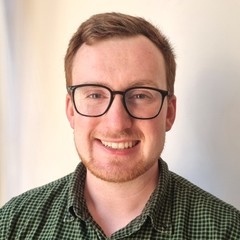
Currently undertaking a PhD in Design at RMIT School of Design, Jacob explores socially engaging technology in later life and its shaping by designers. Approaching design research through investigating the materiality of artifacts, and our interactions with them, Jacob seeks to uncover social-technical practices through dialogical and anthropological means.
Alongside his doctorate research, Jacob is involved in ‘Co-designing Participatory Strategies With Older Adults ‘ (Shaping Connections) and ‘Enabling an Ageing Workforce’ (Safeness by Design) research projects. As a sessional lecturer in Design Studies, Jacob hopes to foster research-led and collaborative design practices in socially complex contexts. With a diverse background in the design industry, he is interested in locating design research practice in wider discourses and interrogating its impact.
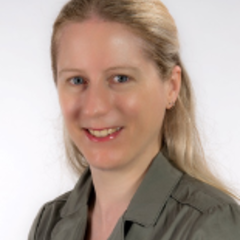
Joanne Peryman (Laban) is a Lecturer in Economics. She holds a PhD in Economics from the University of Exeter, a Masters in Behavioural Economics from the University of Nottingham, and a BCom (Hons) in Economics from the University of Canterbury. Using mainly experimental methods, Jo’s research focuses on cultural differences in decision making, especially in situations involving uncertainty or risk. She has presented the results from this work at conferences in the UK, The Netherlands, and China. Jo is also keen to apply behavioural insights to policy. During her PhD she completed an internship with a UK Government Department, where she applied ideas from behavioural economics to real-life problems. Her work has attracted funding from the UK’s Economic and Social Research Council, as well as numerous small grants from the University of Exeter’s Behaviour, Decisions and Markets Research Centre.
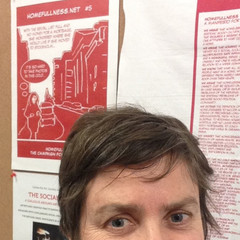
Keely Macarow is Coordinator of Postgraduate Research in the School of Art at RMIT. Keely’s research is focused on socially engaged art and the nexus between creative arts, social justice, health and wellbeing, and social and natural science. Currently, Keely is a member of The Untitled (a collective of artists, urban and graphic designers, architects and housing researchers based in Melbourne and Stockholm) who produce creative works, publications and interventions in Australia and Sweden to advocate for Homefullness (rather than homelessness). Her film, video and exhibition projects have been presented in Australia, the UK, the US, Germany, Belgium, Austria, Sweden, Hungary, France, Scotland and Denmark.
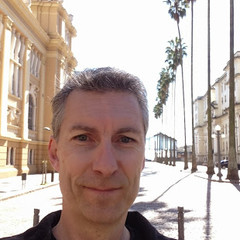
Leon de Bruin, is a Post-Doctoral Research Fellow at RMIT University. He is an educator, musician, composer and researcher. He has extensive research work and has authored over 20 peer reviewed articles and book chapters relating to meta-cognition, creativity, performing arts/artistic practices, STEM/STEAM, creativity in education and the arts. He has been the recipient of the Monash University Vice-Chancellors commendation for excellence (2017), and the ASME Callaway Award (2017) and the Monash University Postgraduate Publications Award (2016).
He works in the RMIT Creative Agency Research Lab, where he brings extensive qualitative and qualitative research experience, expertise in creativity in educational, environments, inderdisciplinarity, creativity and STEAM education, as well as vast educational experience, knowledge and connectivity to Australian Schools.
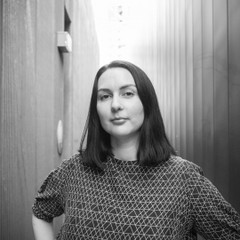
Natalie Hendry is a Vice Chancellor’s Postdoctoral Fellow in the School of Media and Communications. Her research explores everyday social media and digital technology practices in the context of critical approaches to education, mental health, media, wellbeing, youth studies and policy. This brings together her experience prior to academia, working in community education, secondary schools and hospital settings, and consulting for health organisations and industry. Using digital ethnography and creative workshop methods, her postdoctoral research explores emerging and potential online opportunities to enhance digital outreach and media-based support for young people whose parents or adult family members are experiencing mental ill-health.

Cees Bil is Professor within the School of Engineering at RMIT’s Bundoora campus. He is a member of Royal Aeronautical Society (RAeS), a member of the Dutch Association of Aerospace Engineers (NVvL) and a senior member of the American Institute of Aeronautics and Astronautics (AIAA). His areas of research and consulting expertise include aerodynamics, Aerospace Design and Optimisation, Dynamics and Control, Computer-Aided Engineering as well as Simulation and Modelling.
Interdisciplinary conservation scientist; ARC Future Fellow; Professor, ICON Science Research Group, Centre for Urban Research, RMIT University.
Professor Sarah Bekessy leads the Interdisciplinary Conservation Science research group at RMIT University. She is interested in the intersection between science and policy in environmental management and is currently involved in an interdisciplinary range of research projects, including an ARC Future Fellowship titled ‘Socio-ecological models for environmental decision making’ and an ARC linkage project titled ‘Designing green spaces for biodiversity and human well-being’. She leads projects in two National Environment Science Program Hubs (Threatened Species Hub and Clean Air and Urban Landscapes Hub) and is a Chief Investigator in the European Commission-funded project Urban Greenup, which seeks to evaluate nature-based solutions for cities. She co-developed the Biodiversity Sensitive Urban Design protocol that is now being used by numerous developers, governments and non-government organisations to design innovative urban biodiversity strategies.
Zoe is an urban designer and lecturer working at the Australian Urban Design Research Centre (AUDRC), part of the School of Design at the University of Western Australia, where she teaches in the Master of Urban Design. She has led and participated in research projects and design communication for local and State government on topics such as the challenges, perceptions, and spatial issues relating to medium density housing and transit-oriented development, implications of river and sea-level rise for cities, and co-design strategies for urban renewal. Zoe has over 15 years’ experience across the private, public, and tertiary sectors, in project management, policy and planning, and senior strategic communications, including experience in statutory planning, strategic planning policy, and legislative and parliamentary processes. She sits on the City of Vincent Environmental Advisory Group, which has overseen projects such as drain conversion into public park space. Zoe’s current research at AUDRC is focused on how evidence-based urban design can enhance mental health and restoration through connection to nature in our cities, and the remaking of overlooked spaces and hard infrastructure as ecologically and emotionally regenerative places. She is the author of Wildness and Wellbeing: Nature, Neuroscience and Urban Design (Palgrave Macmillan).
Dr Zoe Myers is the team leader for Haptic Pathways, the finalist for the 2019 DCP Design Challenge.
